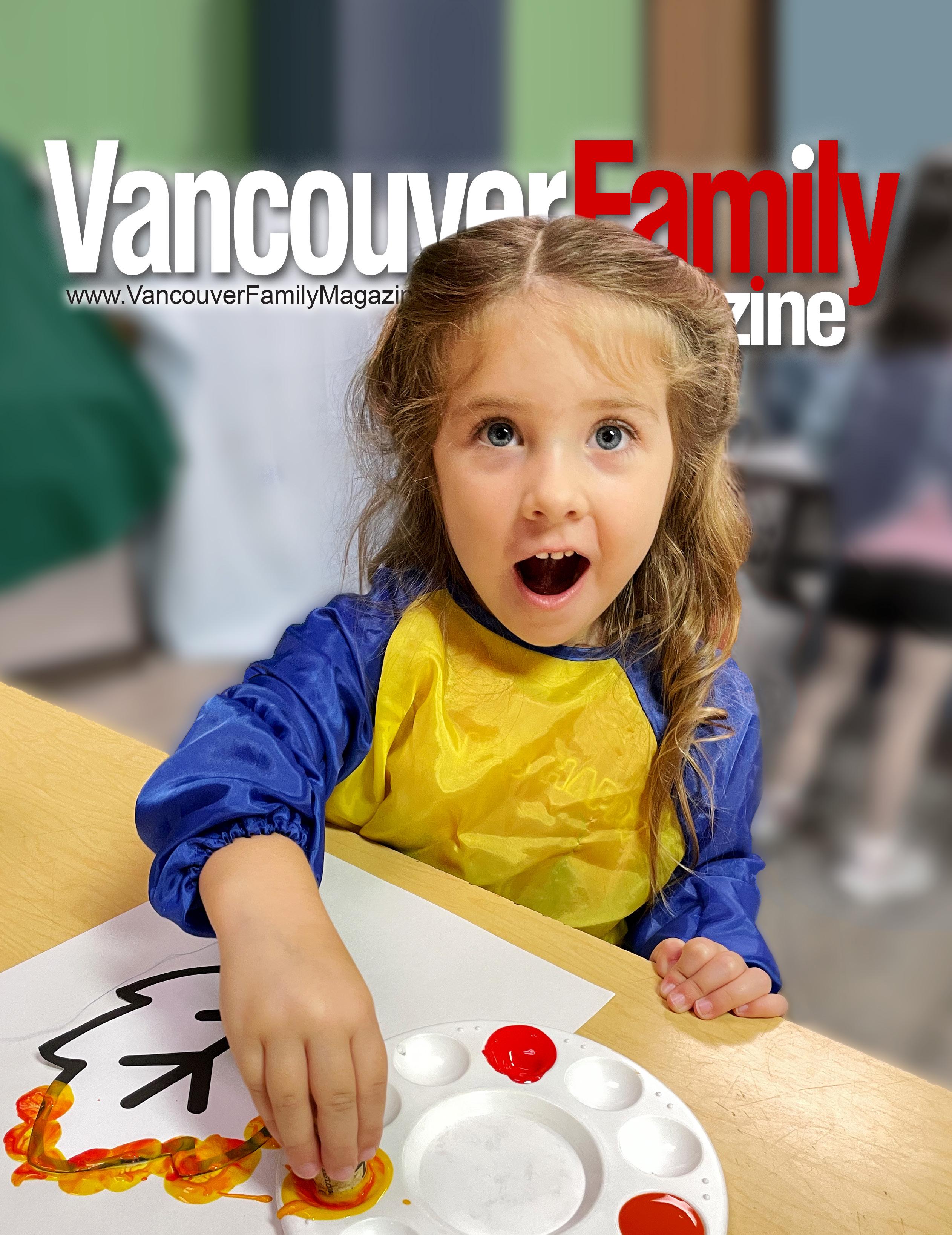










From the moment you find out you’re pregnant to the moment you see that precious face – the journey of motherhood is filled with moments you cherish. PeaceHealth is here for every moment, starting with the moment you choose your pregnancy doctor.

Toren Davis, DO, is a family medicine doctor who specializes in obstetric care. He also focuses on osteopathic medicine to treat the whole person – not just their symptoms. Partnering with Dr. Davis means you get the support of the PeaceHealth Southwest Family Birth Center, which has been named one of the best maternity hospitals in the U.S. by Newsweek magazine for three years in a row.
Learn more at peacehealth.org/vancouvermom or call 360-334-3973.
Toren Davis, DO
PEACEHEALTH FAMILY MEDICINE SOUTHWEST
100 E. 33rd St. Suite 100 Vancouver, WA 98663
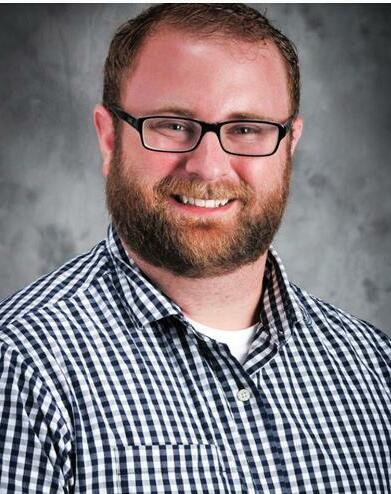
Education Guide 2023
Our Education Guide is back, with a selection of Clark County’s many schooling options, from preschools to high schools (plus college!), private and public.
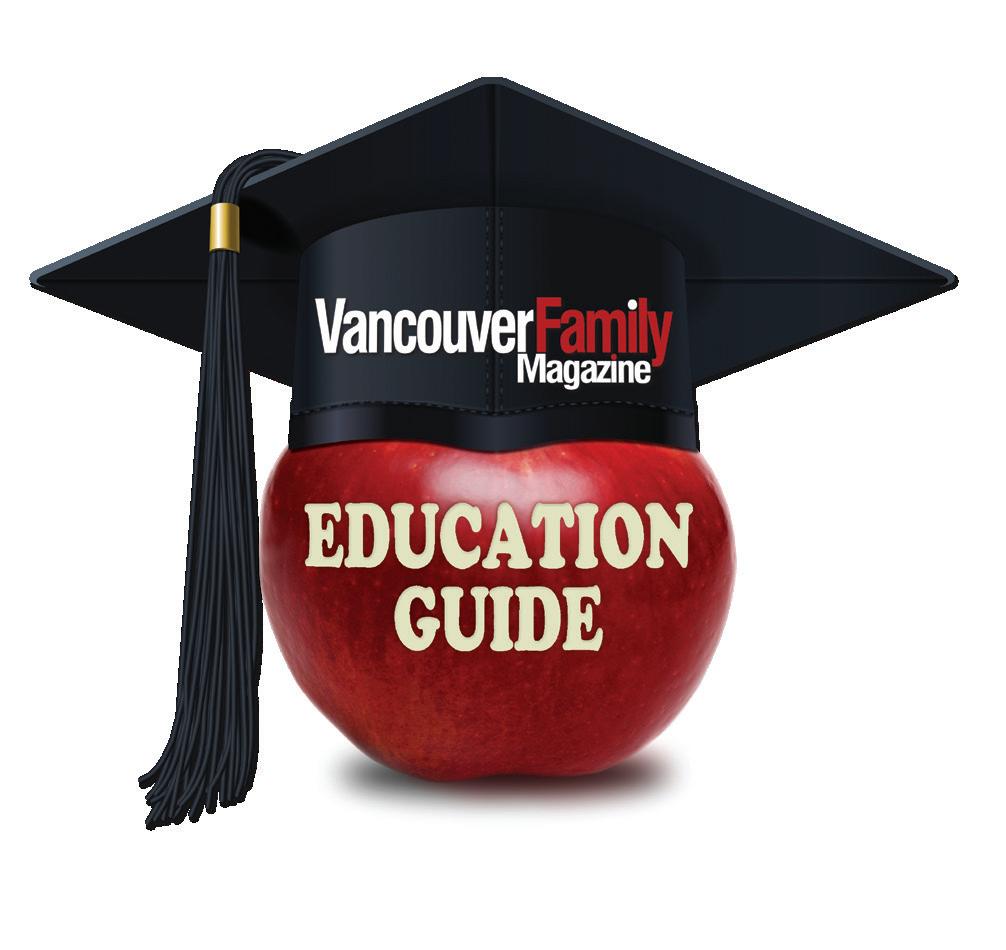
Play on the Go Offering take-home playkits and now unveiling a new Mobile Children's Museum, Columbia Play Project is preparing for their future permanent location.
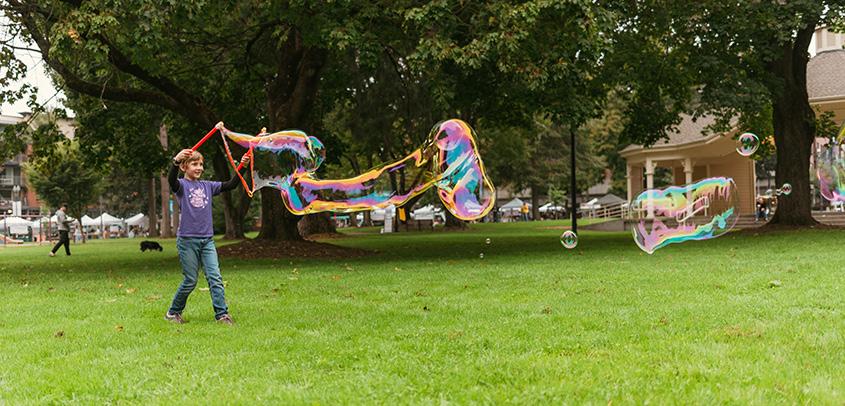
For over a century, Washington State School for the Blind has been educating students with low vision. Read how modern technology and new practices help to ensure every blind student in Washington has a chance to thrive.

• Naloxone Vending Machines: An Innovative Way to Prevent Overdoses
• Leah Hing’s Fleet Aircraft Now on Exhibit at Pearson Air Museum 10
Helping Hands
A new regular column from Vancouver Family Magazine, illuminating the value of volunteers in the Southwest Washington community. This month: Helping hands in local schools.
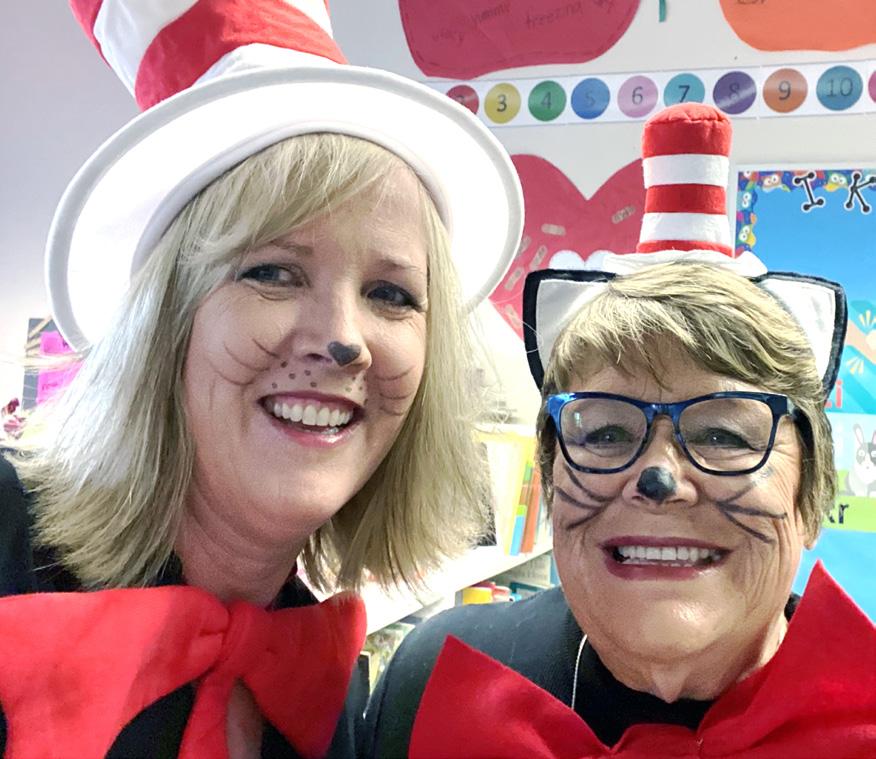
Calendar of Events & Activities
• Enter for a chance to win a book bundle from Washington children's author, Rose Sprinkle, plus $100 worth of gift cards to local book shops!
• Vancouver Family Magazine: 20 Years of Serving Southwest Washington
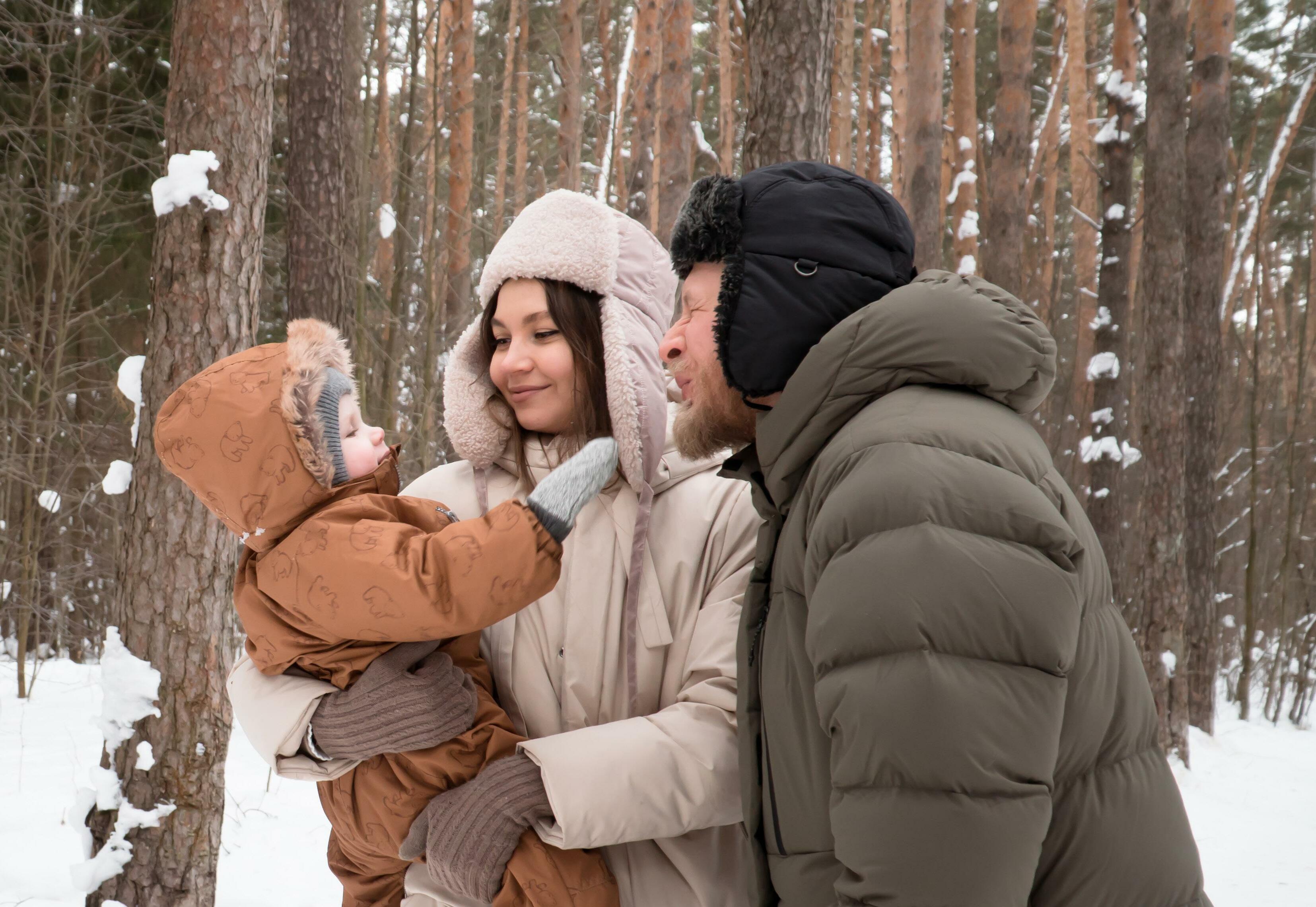
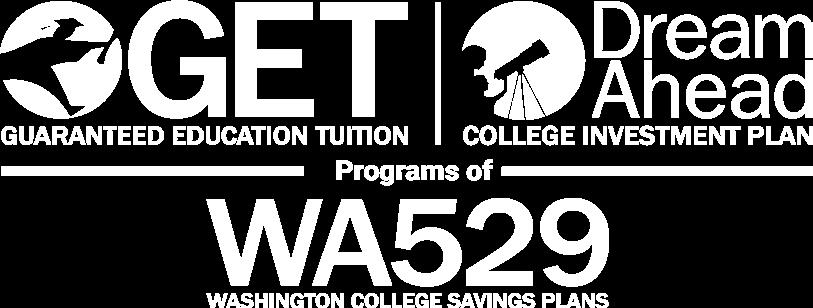

Twenty years ago this year, a mom in Vancouver noticed a lack of Clark County-specific resources for her young family. So, she did what any mom would do—she started a magazine. In 2003, Summer Morris founded Childcare Choices, which became Vancouver Kidz Magazine, which later became Vancouver Family Magazine. Over these 20 years, we have covered fun community events, the monumental and meaningful work of nonprofits, innovations in education and health care, fascinating personalities, compelling personal stories, local news and so much more—all happening in, and directly impacting, Southwest Washington. Throughout 2023, we’ll be celebrating this milestone anniversary with special giveaways, archive content, sharing our favorite memorable moments and more. We’re proud to be the magazine for Southwest Washington families, and we couldn’t do it without you! We’re thankful for our readers, our advertisers and the many individuals and organizations who have shared their stories with us over the last 20 years. Here’s to many more stories in the years and decades ahead!
In this annual education issue, learn how Columbia Play Project brings the party (and the learning) to you with their brand new Mobile Children’s Museum (page 22), peek inside Washington State School for the Blind to discover how modern technology and new practices help to ensure every blind and low-vision student in Washington has a chance to thrive (page 30), and check out Helping Hands, our new regular column that highlights the value of volunteers in Southwest Washington’s vibrant community. Plus, our Education Guide is back, with a broad selection of Clark County’s schooling options, from preschools to high schools, public and private (page 12).
www.VancouverFamilyMagazine.com
Publisher Julie Buchan
Julie@vancouverfamilymagazine.com (360) 882-7762
Editor Nikki Klock Nikki@vancouverfamilymagazine.com (360) 882-7762
Associate Editor Sarah Mortensen Sarah@vancouverfamilymagazine.com
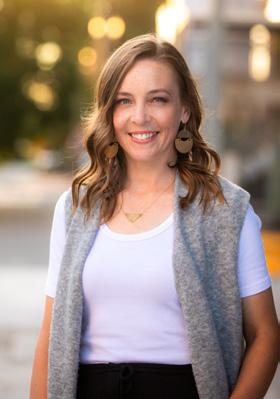
Graphic Designer I-Shüan Warr Ishuan@vancouverfamilymagazine.com
Contributing Writers Kristen Flowers, Sarah Mortensen
Ad Sales sales@vancouverfamilymagazine.com
Vancouver Family Magazine is published monthly by Vancouver Kidz Magazine, LLC Address: PO Box 820264 Vancouver, WA 98682 Tel: 360-882-7762
Copyright 2002-2023. All rights reserved. No portion of Vancouver Family Magazine may be reproduced without written permission from the publisher.
Vancouver Kidz Magazine, LLC and staff do not recommend or endorse any service, product, or content represented in this magazine or on our website. The sole purpose of this publication is to provide information on available services and/or products. It is the consumer’s responsibility to verify the accuracy of information given. Vancouver Kidz Magazine, LLC, and/or Julie Buchan and Nikki Klock and staff do not assume and disclaim any liability to any party for any loss or damage caused by error or omission in this magazine or on our website. We reserve the right to refuse service to anyone.
Zahava N. of Vancouver loves playing at the park, visiting the library and going to preschool at Riverside Performing Arts. She's looking forward to learning how to climb the rock wall at Firstenburg Community Center when she turns 4.
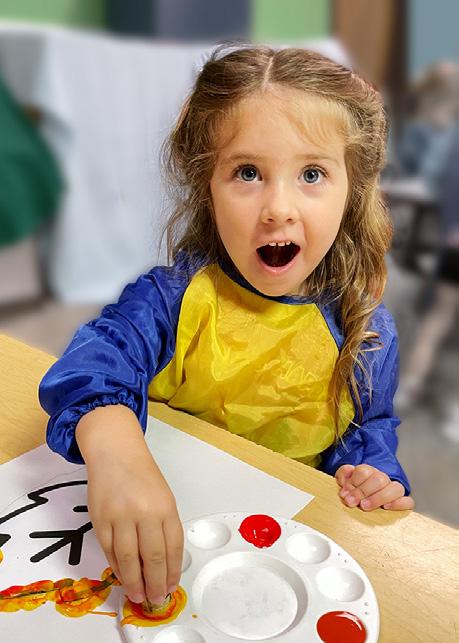
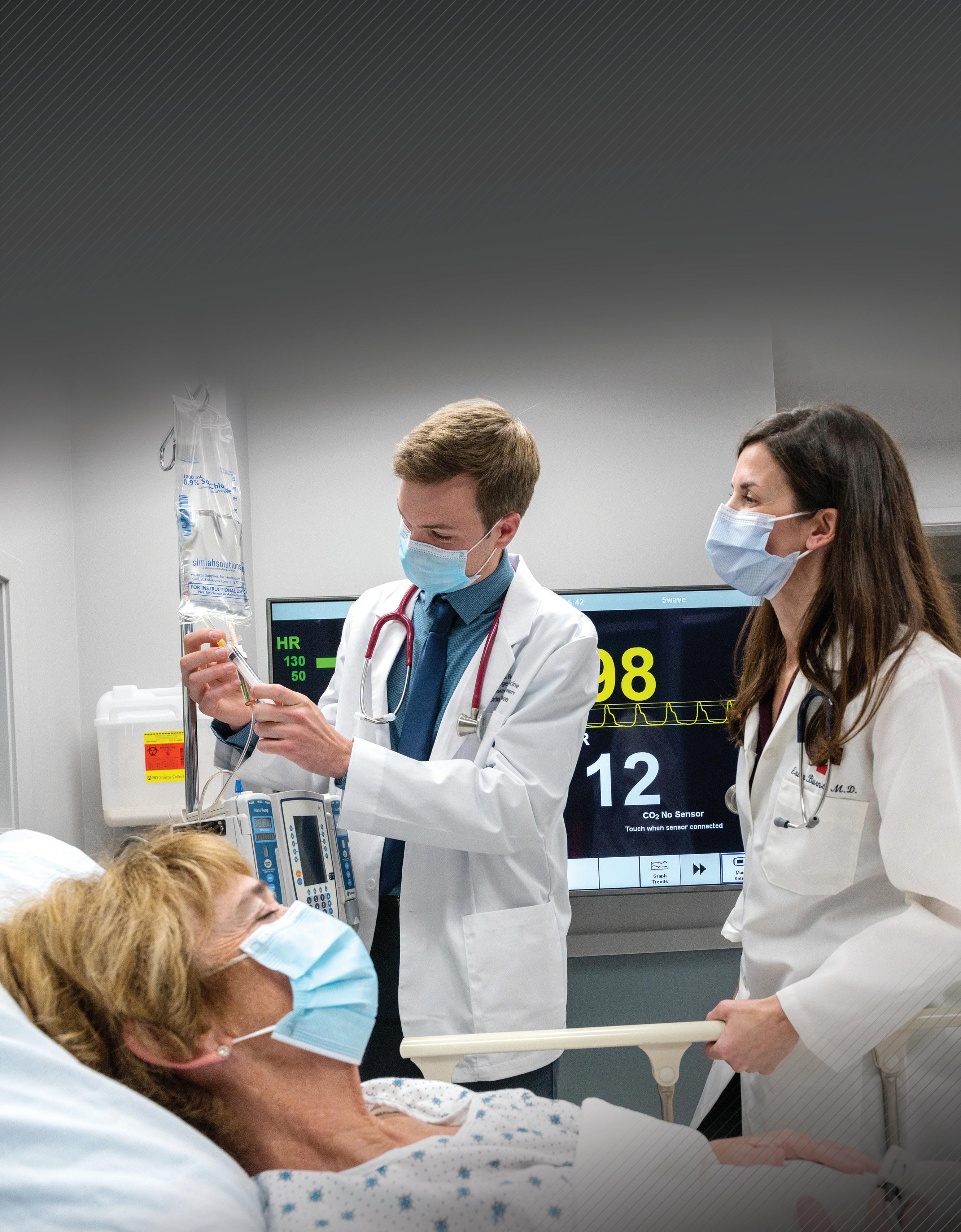
WE ARE the only medical school in Washington where 100% of medical students are from Washington
I
n Washington State, an average of two people die from an overdose each day. As an innovative approach to address our region’s opioid epidemic, Southwest Washington Accountable Community of Health (SWACH) recently announced five dispensing vending machines that will provide free naloxone in Clark, Skamania, and Klickitat counties. The end goal of these machines is to save lives from overdose by making naloxone more readily available.
Naloxone, also known as Narcan, is a safe and effective medication that can reverse an overdose from opioids. It quite literally is a life saver for individuals battling substance use disorder (SUD). While incredibly effective, unfortunately, naloxone availability varies across our region and is more difficult to access in rural, low-income and BIPOC communities. By making naloxone free and easy to find, medication can get in the hands of more people who need it and help undo some of the stigma around active addiction by normalizing the conversation.
The self-serve vending machines will dispense boxes of nasal naloxone to community members free of charge. Each machine will be in a location that offers treatment and/or recovery services; however, engaging with
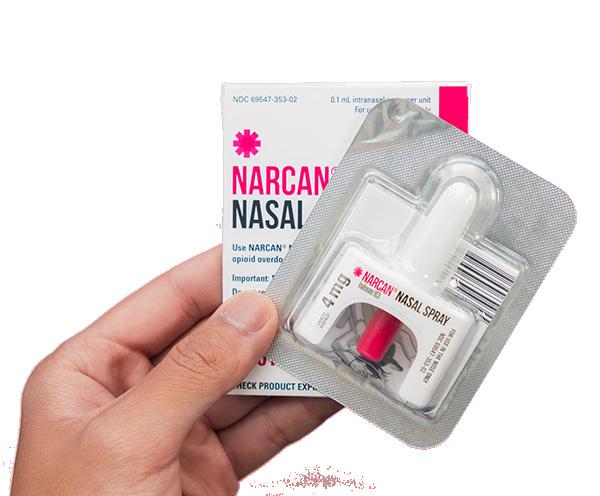
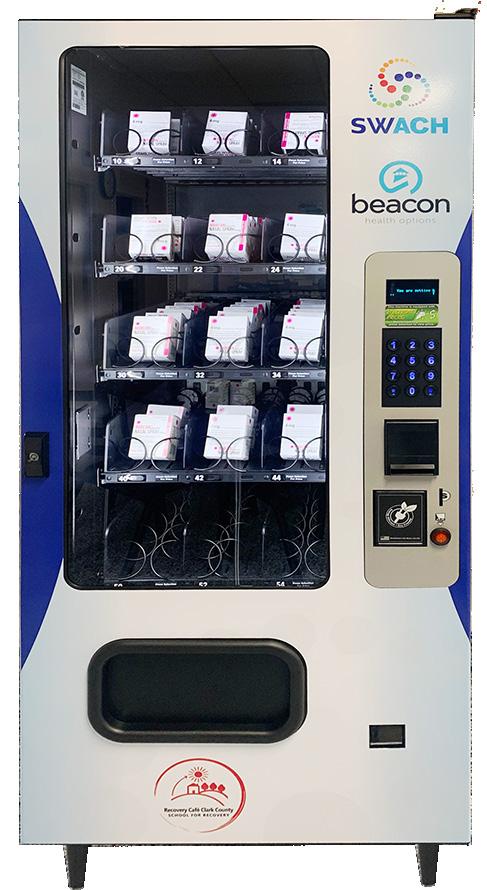
these services is not required to access the free naloxone. Anyone may access naloxone from these machines whether it is for themselves, a loved one, or simply to have on hand as part of a first-aid kit.
Naloxone is now available at these locations in Clark County:
XChange Church & Recovery Center
21810 Northeast 37th Avenue, Ridgefield, WA 98642
Lifeline Connections Recovery Resource Center 9317 NE Hwy 99 Suite M, Vancouver, WA 98665
Recovery Café 3312 E. Fourth Plain Blvd. Suite #100, Vancouver, WA 98661
-By
The National Park Service and The Historic Trust recently announced the new display of a historic aircraft flown by one of the first Chinese American female pilots and an OX-5 engine at Pearson Air Museum, a part of Fort Vancouver National Historic Site (NHS). The aircraft and engine have been generously donated by the Trust to the national park’s museum collection. The 1931 Fleet Model 7 biplane was formerly owned by Leah Hing, an early Chinese American pilot associated with Pearson Field, as well as the Portland Chinese American Flying Club.
While playing with a band in Chicago, Leah Hing took her first airplane ride at a school for Chinese American aviators. Soon after, she returned to Portland to work as a cashier in her father’s restaurant, the Chinese Tea Garden, but was determined to become a pilot. Tex Rankin, a national figure in the world of aviation, dined at the Chinese Tea Garden and met Hing. John Gilbert “Tex” Rankin started a flying school in Portland in 1923 but moved his operations to Pearson Field for the years 1924 through 1926. Rankin’s school taught many early Northwest pilots. Rankin suggested that Hing should “take up flying,” and Hing agreed. In a 1980 interview, Hing stated that “there was no antagonism against women pilots, for
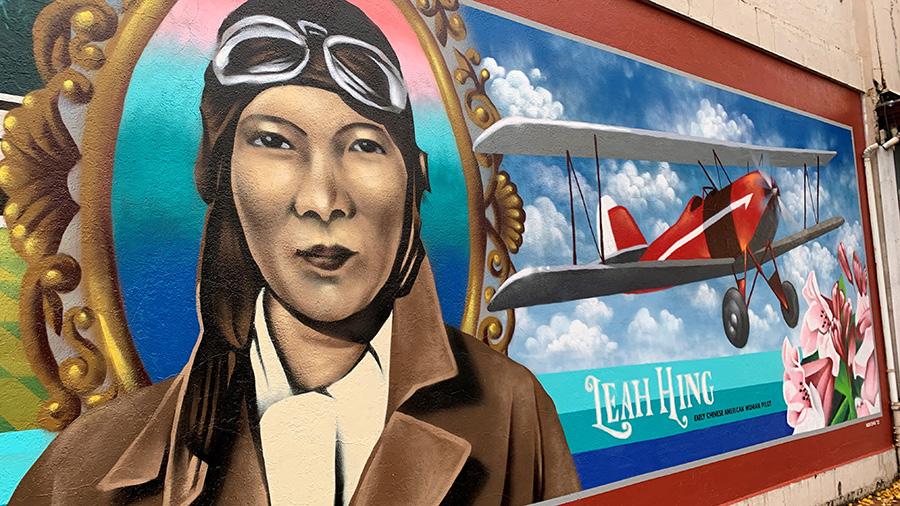
Rankin taught many women.” According to Rankin, Hing was a natural pilot.
Hing also trained with Pat Reynolds, a reserve officer with the 321st Observation Squadron at Pearson Field. In 1934, she received her pilot’s license. In 1939, she became a member of The Ninety-Nines, an organization for women aviators founded by Amelia Earhart. In 1941, Hing became the secretary-treasurer for the group’s Northwest chapter.
Tracy Fortmann, superintendent of Fort Vancouver NHS, stated, “We’re honored to share Leah Hing’s trailblazing story through exhibits and programs at Pearson Air Museum, and to add her plane brings the story full circle. She broke ground for women and Chinese Americans in aviation, and she had many direct ties to this site. How often do we get a connection that long, which connects so many aspects of our community? She captures in many respects the American story, blazing her own trail and serving as a positive model for others.”
The aircraft will be on display as part of the museum’s permanent exhibits and is complemented by a nearby exhibit panel telling Leah Hing’s story.
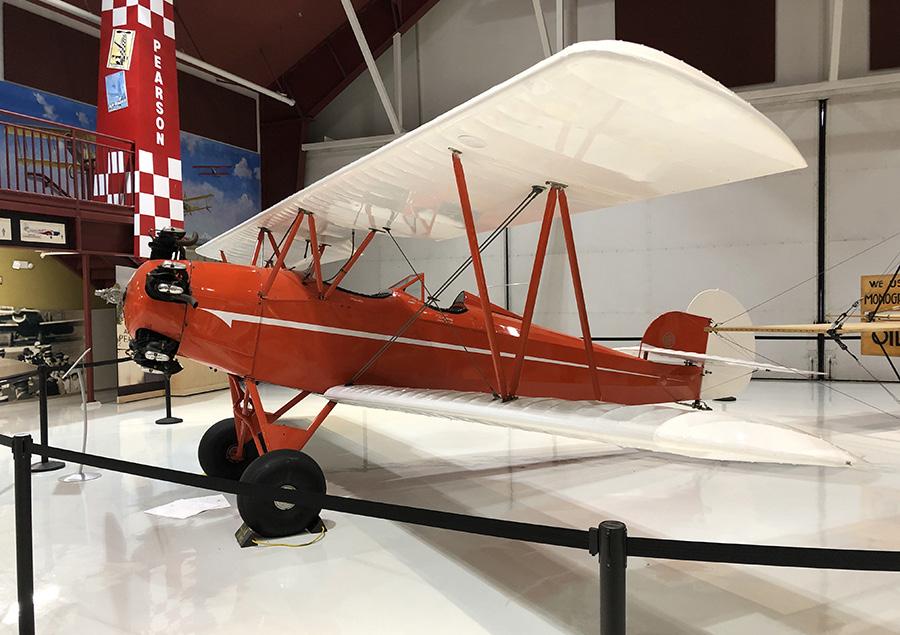

A new regular column from Vancouver Family Magazine, illuminating the value of volunteers in the Southwest Washington community.
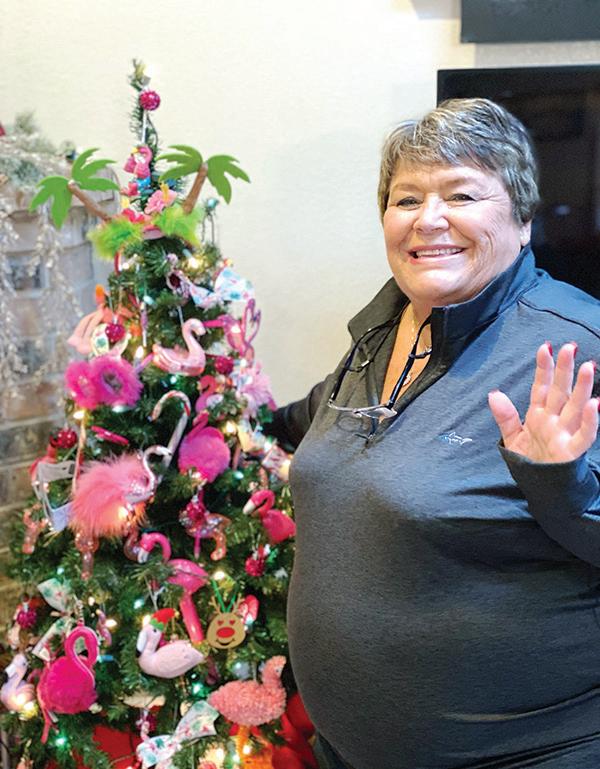
Just outside the kindergarten classrooms of Chinook Elementary are tables where “messy” projects that require glitter and paint, like giant pumpkins for harvest time and handprint turkeys for Thanksgiving, are created by enthusiastic 5- and 6-year-olds. Sending the children into the hallway in small groups keeps these projects manageable and the classroom on the quieter side. Plus, the sink is nearby for quick cleanup. Since the teacher can’t be in two places at once, a volunteer is needed to oversee the groups of young artists. Sometimes this volunteer is a parent, but at Chinook, it’s most often Karen Plinski.
Plinski commuted from Vancouver to Hillsboro for work while her kids were young and therefore didn’t have the opportunity to help out in her own children’s classrooms during their elementary years. After her retirement, Plinski heard that the nearby school was looking for volunteers and she jumped at the opportunity to do what she had previously missed out on. She began by helping the librarian to re-shelve books, but quickly found her “home” in kindergarten. Eight years later, she’s at the school so often that many other parent visitors have assumed she is a paid staff member, or at least a grandma to a student. She is not paid, but is in many ways a grandmother to the students. She knows
them by name, who their siblings are, what they do for fun and even what they ate for breakfast. She watches them grow up and wishes them good luck as they move onto middle school. Three years ago, Chinook’s PTA honored Karen at the end of the year assembly, thanking her for her countless hours of work to support both the students and staff of the school.
While schools opened last year to students, they were not open to parents or volunteers. Around spring, volunteers were slowly permitted back into buildings as the COVID-19 protocols eased Mike Tokito, communications manager with Evergreen Public Schools (EPS) recognizes that volunteers like Plinski bring something extra to the schools and wants everyone to know that there are multiple ways to help. He notes that, as the district’s volunteer handbook says, these opportunities are “designed to promote and maintain a supportive relationship between students, their schools and their community.” One such opportunity is the school Lunch Buddy program where a volunteer commits to having lunch with a student once a week for the whole school year. “They can read together, play an assortment of fun games or just hang out and talk,” explains Tokito. The one-on-one time with a caring adult helps students who may struggle to build relationships get mentoring from someone they know is not getting paid to spend time with them. Knowing the person does not have to be there, but simply chooses to be, completely changes the dynamic between the student and adult. It’s just one way to start to rebuild community continued on next page
“
“As a volunteer, I do this because I want to do it. I enjoy being interactive with people. Working in the retail business was a good career but not every day was a fun day. Volunteering as a teacher’s helper is more fulfilling for me because I am surrounded by youthful energy and excitement. Every day is a learning experience for both the students and me. It is so fulfilling for me to be with the children. My heart is big enough for all of them.”–Karen Plinski
joyfullearningisfun@gmail.com joyfullearningpreschool.com (360)513-7447 NOW ENROLLING! Call today!
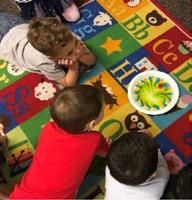

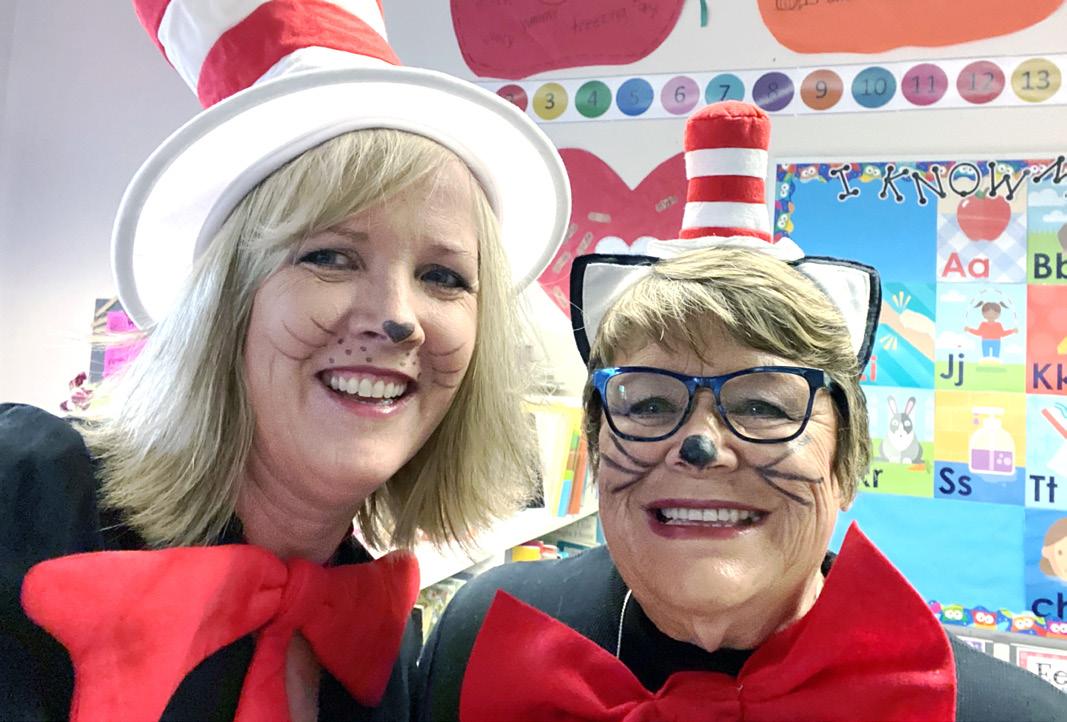
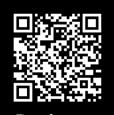

continued from previous page We encourage all children to express their creativity, explore their curiosity, and to be independent thinkers and lifelong learners!
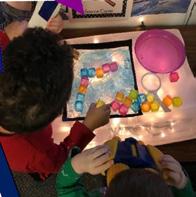
connections. Additionally, the Art Discovery program at EPS is meant to help elementary students explore different mediums of fine art. There is a monthly theme-based lesson completed with a volunteer. These enrichment lessons are activities that students enjoy, but that, without the help of volunteers, would not be possible.
Whether it’s friendship, personal expertise or helping a teacher prepare materials, volunteers take on many roles inside schools. According to Plinski, it’s the kids that keep her coming back year after year, “because I look forward to experiencing the expressions and smiles of the children. They share wonderful and [the] most entertaining stories with me . . . Frustration comes into play when things don’t always go their way and learning can be hard for some, but with a little coaching and support, I can help them get through the day with a smile.” The continuity of Plinski’s volunteering is exactly what makes her efforts so meaningful, but there are other ways to help that require less commitment. Plinski’s advice to those thinking about volunteering at a school is that even an hour or two of help is a “gift to the school.” Teacher Karen Jeffs agrees, and says that the help Plinski provides is “immeasurable.”
At a time when headlines tell of short-staffed schools and kids who are still catching up, both socially and academically, from years spent home during the pandemic, volunteers are more needed

• What changes are new this year?
• Is my doctor still in network?
• What are my prescription costs?
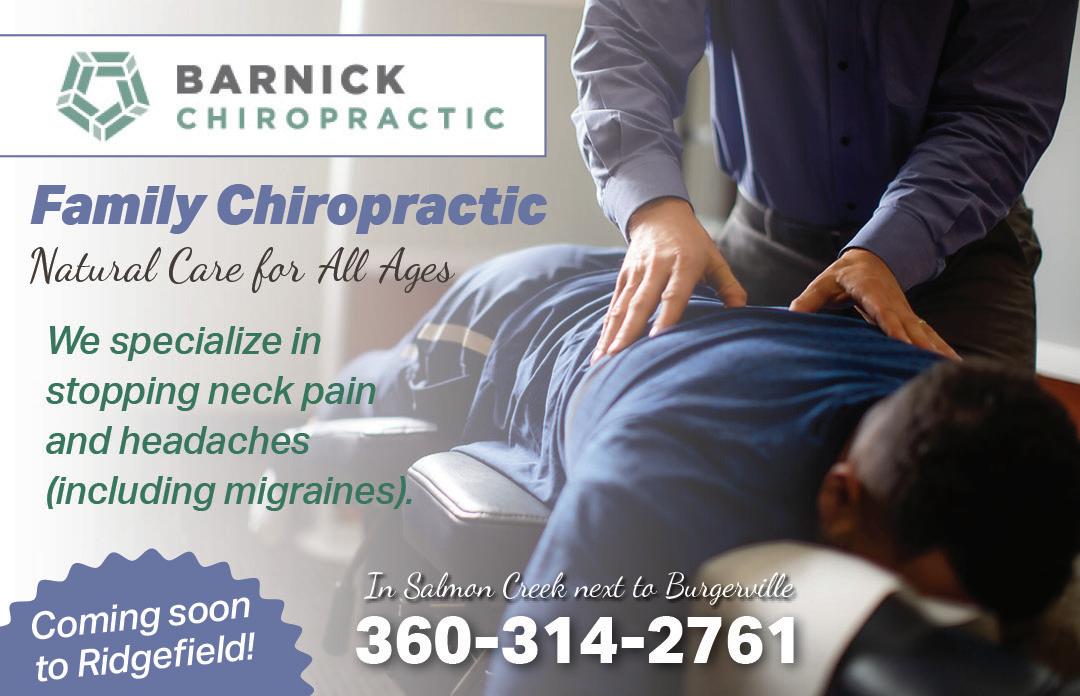
• How do I enroll?
and welcome than ever. According to Vancouver Public Schools’ volunteer webpage, “You don’t need teaching or professional experience to volunteer. The most important qualification is a genuine interest in helping our students and teachers maximize their potential.”
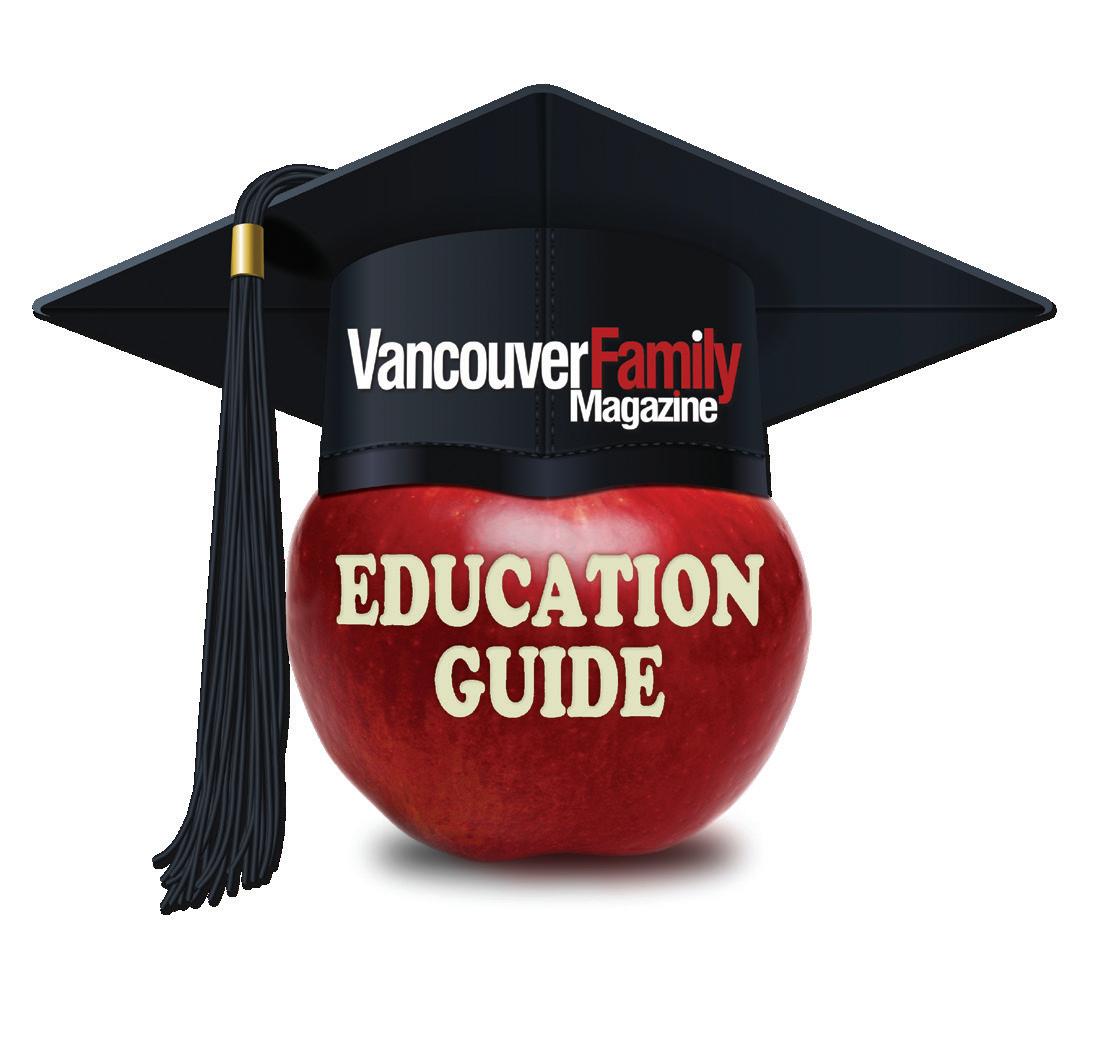

Grades: Preschool-Kindergarten
Location: Vancouver, WA Phone: 360-314-4190
Website: BlueSpruceMontessoriWA com
Description: Licensed in-home Montessori program serving children ages 2.5-6 years old.
centered education in a safe, supportive community that promotes self-discipline, confidence, collaboration, citizenship and lasting love of learning.
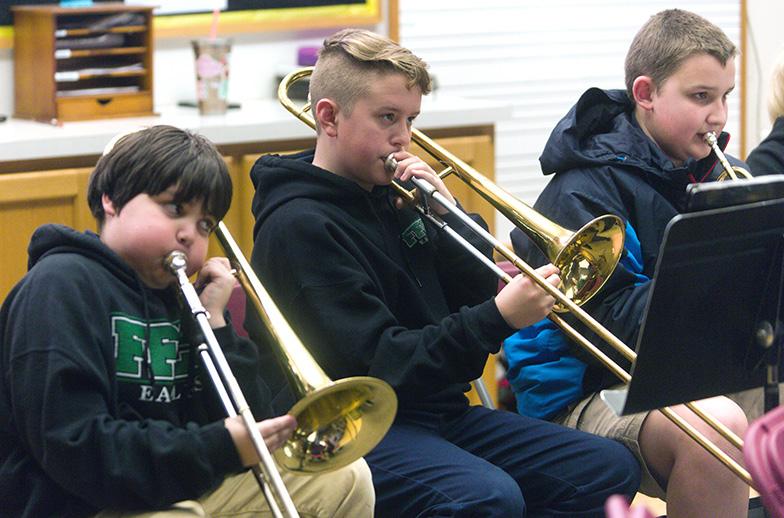
Our Equity Statement: We strive to embody Dr. Montessori’s vision of providing an educational environment fostering all students to be selfmotivated, independent thinkers who learn from and contribute to the global community. Our families, staff, and students promote a collaborative community that embraces our differences from a place of awareness, appreciation, empathy and learning.
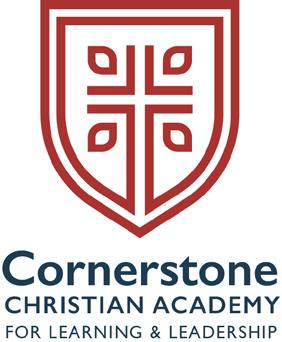
servant leaders. Our Vancouver Campus offers programs for Early Childhood (1-5 years old) and kindergarten through 4th grade, as well as before and after school care. Our Battle Ground campus offers programs for kindergarten through 10th grade. Enrollment for the 2023-24 school year will begin online on our school website in February 2023. To schedule a tour or for more information, please visit our website at www.ccak12.net.
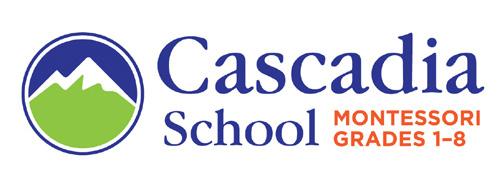
Grades: 1-8
Location: 10606 NE 14th St., Vancouver, WA 98664
Phone: 360-944-8096
Website: CascadiaSchool.org
Our Mission: Cascadia School encourages the inherent love of learning and guides the development of the whole child; preparing students to become responsible contributing members of their immediate and global communities.
Our Vision: Through the Montessori philosophy, Cascadia provides a child-
Grades: K-10 and Early Childhood Education

Location: Vancouver campus: 10818 NE 117th Ave., Vancouver, WA 98662; Battle Ground campus – 715 NW Onsdorff Blvd., Battle Ground, WA 98604
Phone: 360-256-9715
Website: CCAK12.net
Description: Cornerstone Christian Academy for Learning & Leadership provides a safe, nurturing, Christcentered environment for students to grow academically, spiritually and physically into the next generation of
Foundation Christian School
Grades: Pre-K-12th Grade
Location: 1919 SW 25th Ave., Battle Ground, WA 98604-7451
Phone: 360-687-8382
Website: FirmFoundationChristian School.org
Description: Firm Foundation Christian
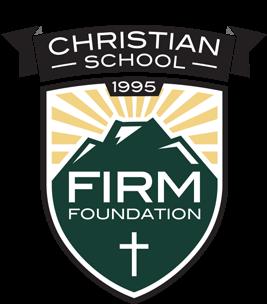
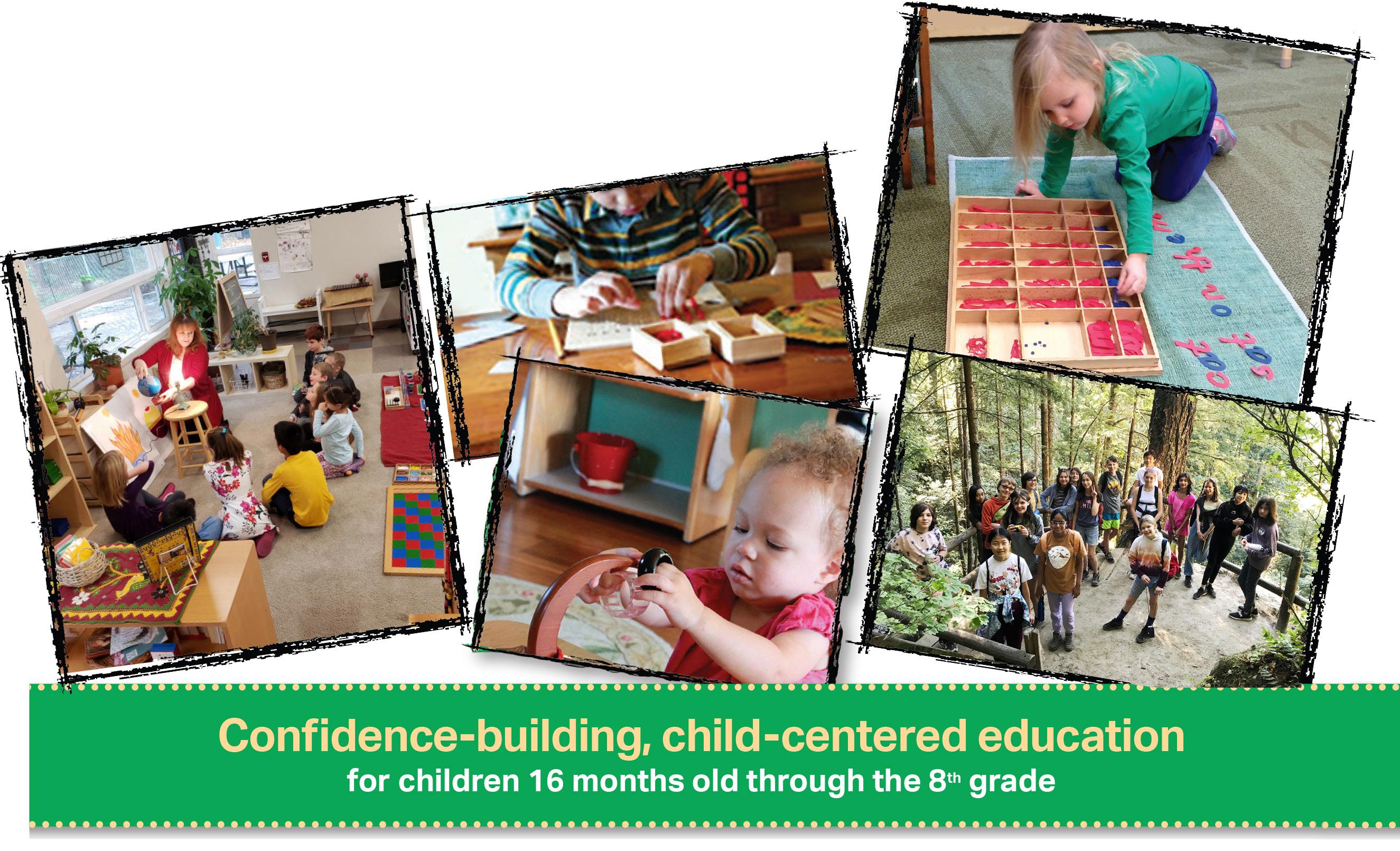
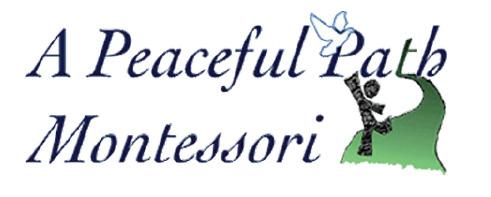


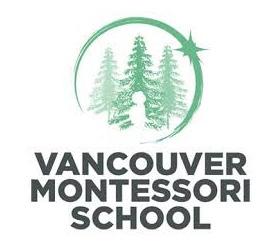



continued from page 12
School assists families in developing today’s youth into Christian leaders serving in the home, church and community. By providing an education emphasizing academic excellence using a Bible-based curriculum, our goal is to foster spiritual growth based on biblical truths as student’s discover and develop their God-given gifts and talents.
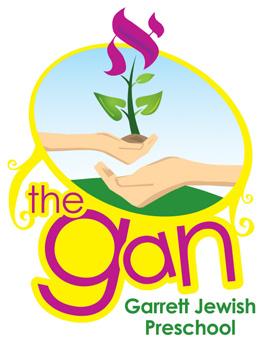
Grades: Preschool Location: 9604 NE 126th Ave., Vancouver, WA 98682 Phone: 360-256-0859 Website: TheGan.org Description: The Gan unites children, teachers, family and community in a positive and constructive early childhood experience. Our Jewish values drive the curriculum, environment and school culture.
Grades: Birth-Pre-K Location: 13201 NE 27th Ave., Vancouver, WA, 98686 Phone: 360-573-2466 Website: GoddardSchool.com/ Salmon-CreekWA
Description: We’re an educational child development center for ages 0-6. We provide all-day educational care.
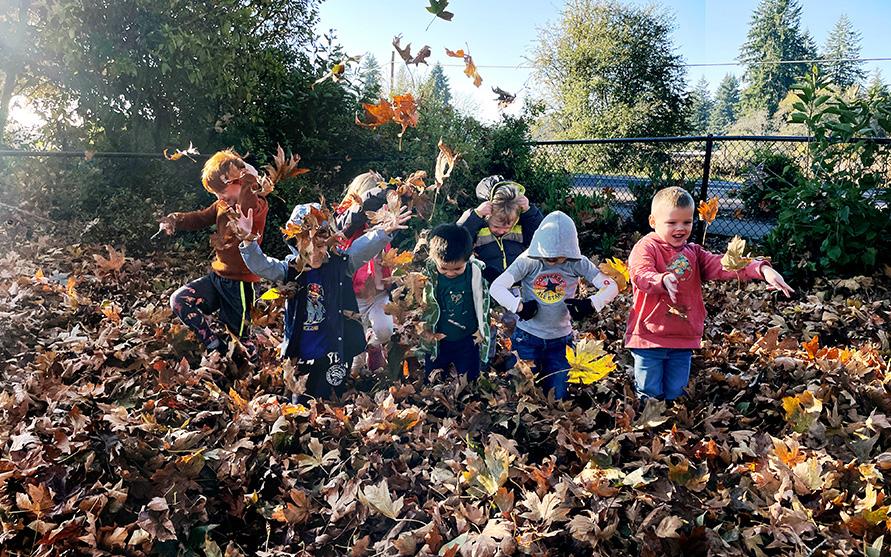
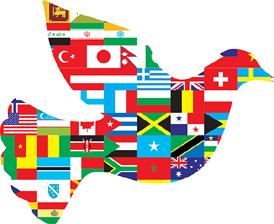

the largest private Christian school in Southwest Washington, but small enough for students to be able to explore their dreams.
Grades: Age 3Kindergarten

Grades: Preschool-Kindergarten (Ages 2 ½ - 6)
Location: 4803 NE 15th Ave., Vancouver, WA 98663
Phone: 360-573-4103 Website: LakeshoreMontessori.com
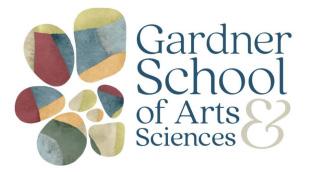
Grades: Pre-K-6th Grade Location: 16413 NE 50th Ave., Vancouver, Washington 98686 Phone: 360-574-5752
Website: Gardner School.org Description: Founded in 1995, the Gardner School is Southwest Washington’s only independent, private progressive student-centered learning environment, serving students from preschool through 6th grade. Inspired by the theory of multiple intelligences –identified by Harvard professor Howard Gardner – our community of teachers and learners recognizes and honors many ways of learning, thinking and expressing.
Location: 805 SE Ellsworth Rd., Vancouver, WA. Phone: 360-892-2018 Website: GSMontessori.org Description: Long established Montessori school offering Before and After school care and year round school available. Featuring Catechesis of the Good Shepherd curriculum option.
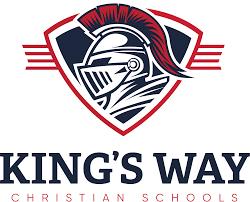
Grades: 12 months-12th Grade Location: 3606 NE 78th St., Vancouver, WA 98665 Phone: 360-574-1613 Website: KWCS.org Description: For over 50 years, King’s Way has served Southwest Washington with academic excellence and strong biblical teachings and offers innovative studies and excellent extracurricular programs. Our campus serves approximately 1,000 students from preschool (12 months), through high school (12th grade). We are
Description: A child-led process, Montessori is an approach to education that maximizes each child’s individual drives and strengths, using materials that stimulate self-teaching. The carefully arranged traditional Montessori classroom allows children to self-select from lessons and exercises in the areas of practical life, sensorial education, mathematics, language arts, geography, botany, zoology, geography, music and art. In addition, at Lakeshore we focus each term on the cultures and ecological systems of a different continent. We also learn languages that go with each continent. At any given time, we may be learning Spanish, Japanese or Swahili!

Grades: K-8
Location: 1207 E. Reserve St., Vancouver, WA 98661
Phone: 360-910-4953
Website: LupineSchool.org
Description: Lupine is a communitycentered, experiential learning environment for students in grades K-8.

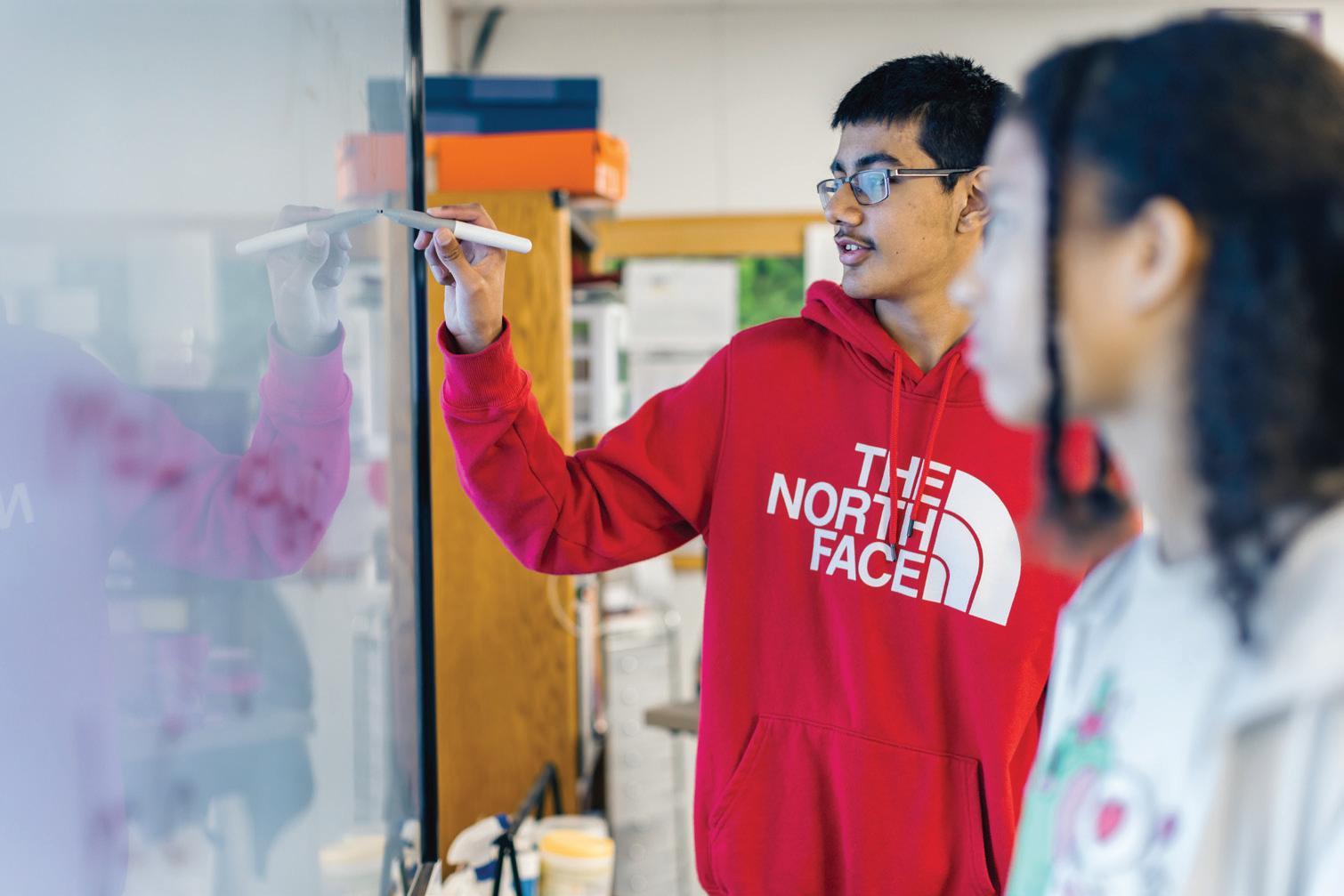
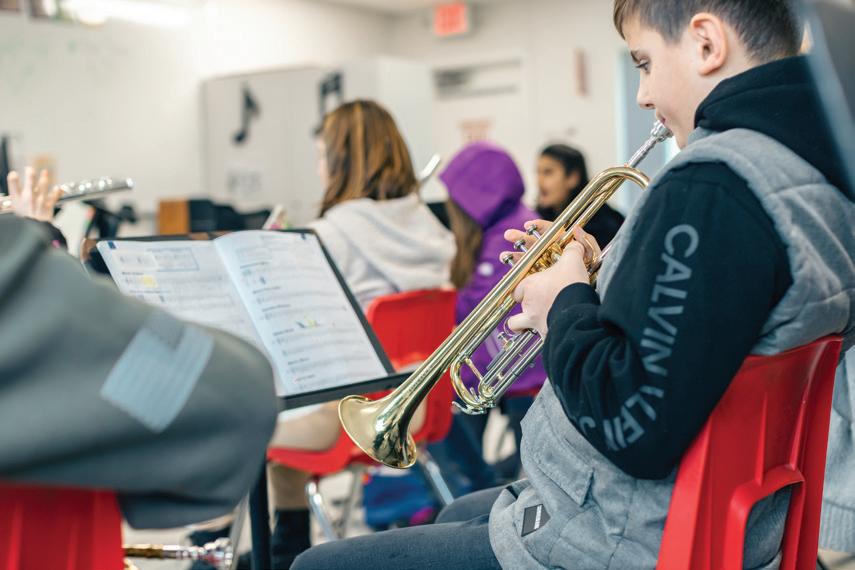


continued from page 14
Our students engage in meaningful, authentic experiences that support and extend learning in the core academic subjects and offer crucial life lessons. Students are empowered to interact with and make positive impacts in their community. They develop knowledge and skills by working for an extended period of time to investigate and respond to an authentic, engaging and complex question, problem or challenge. Community is the foundation of Lupine. Our nurturing environment allows students and teachers to develop lasting connections that promote collaboration and foster social emotional learning.

Grades: Preschool
Location: 1307 B9 NE 78th St., Vancouver, WA 98665
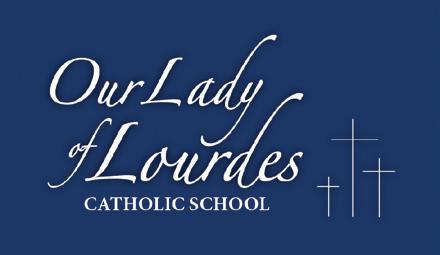
Grades: Preschool-8th Grade
Location: 4701 NW Franklin St., Vancouver, WA 98663 Phone: 360-696-2301 Website: LourdesVan.org
Description: Welcome to Our Lady of Lourdes Catholic School where exceptional academics and Catholic/Christian morals and values are taught with care and respect. Conveniently located in the heart of Vancouver, WA, our private school provides strong academics, a wellrounded education, accomplishes diligent community service, and offers a long list of extracurricular opportunities including sports. All children thrive here as our highly trained teachers journey with them through preschool, elementary, intermediate and middle school. All faiths are welcome in this friendly, family oriented, private school, which is fully accredited by the Western Catholic Education Association.
Phone: 360-694-8662 Website: RiversidePA.com/preschool Description: We believe children learn best when their bodies and minds are both active. Whether it’s dancing the alphabet dance, singing songs about insects and animals or counting using instruments, your child will have a wonderful and fun start to their schooling. We base instruction on Vygotsky’s Zone of Proximal Development; basing each child’s instruction on what they can accomplish independently and with guidance and encouragement from the teacher. Children will be immersed in the performing arts as well as learning the foundations of reading, science, math, writing, social-emotional, communication and visual art. Each day your child will have lessons in dance, music or drama combined with their academics to create a truly unique and enriching learning environment. Our flexible schedule allows you to choose from 2, 3 or 5 days per week.
and to be successful in college and in life. Founded in 2009, Seton Catholic is a Catholic, coeducational, college prep school for students grades 9-12. The only Catholic high school in Vancouver, Seton Catholic welcomes students from all over the region to be a part of a welcoming and diverse academic family that strengthens and encourages growth in all areas. Regardless of background, experience, or faith tradition, our students are welcome and active members of our Seton Catholic family. In this community, our teachers and staff inspire a loving, respectful and nurturing environment where all students are valued where they are for who they are.
Grades: Pre-K-5th Grade
Location: 5001 NE 66th Ave., Vancouver, WA 98661 Phone: 360-696-4862
Grades: 9-12
Location: 9000 NE 64th Ave., Vancouver, WA 98665
Phone: 360-258-1932 Website: SetonHigh.org Description: Grounded in Christian values and the Catholic tradition, St. Elizabeth Ann Seton Catholic High School inspires and empowers students to achieve their greatest potential, becoming faith-filled leaders prepared to serve
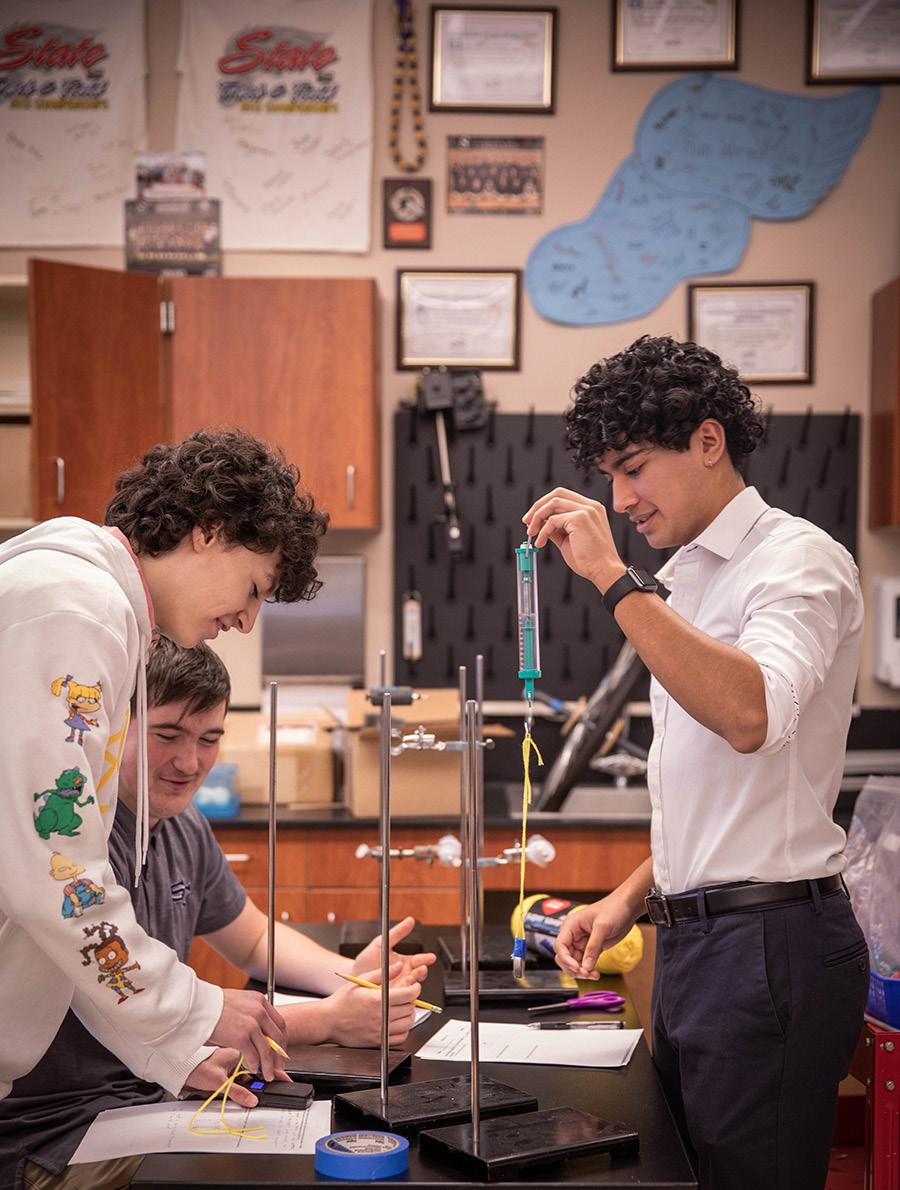
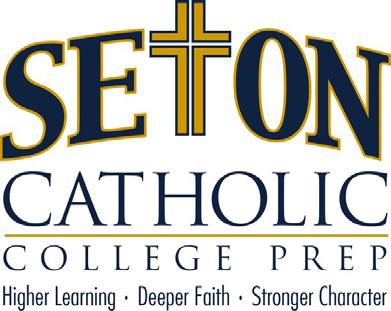
Website: SkinnerMontessori.com
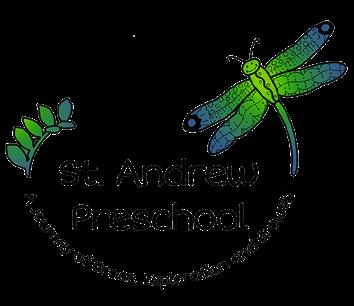
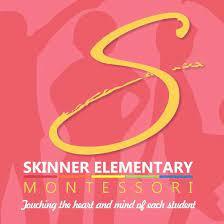
Description: Montessori education for children 2.5 years through 5th grade.
Grades: Preschool (Ages 2-5)
Location: 5607 NE Gher Rd., Vancouver, WA 98662
Phone: 360-892-7210
Website: PreschoolStA ndrew.org
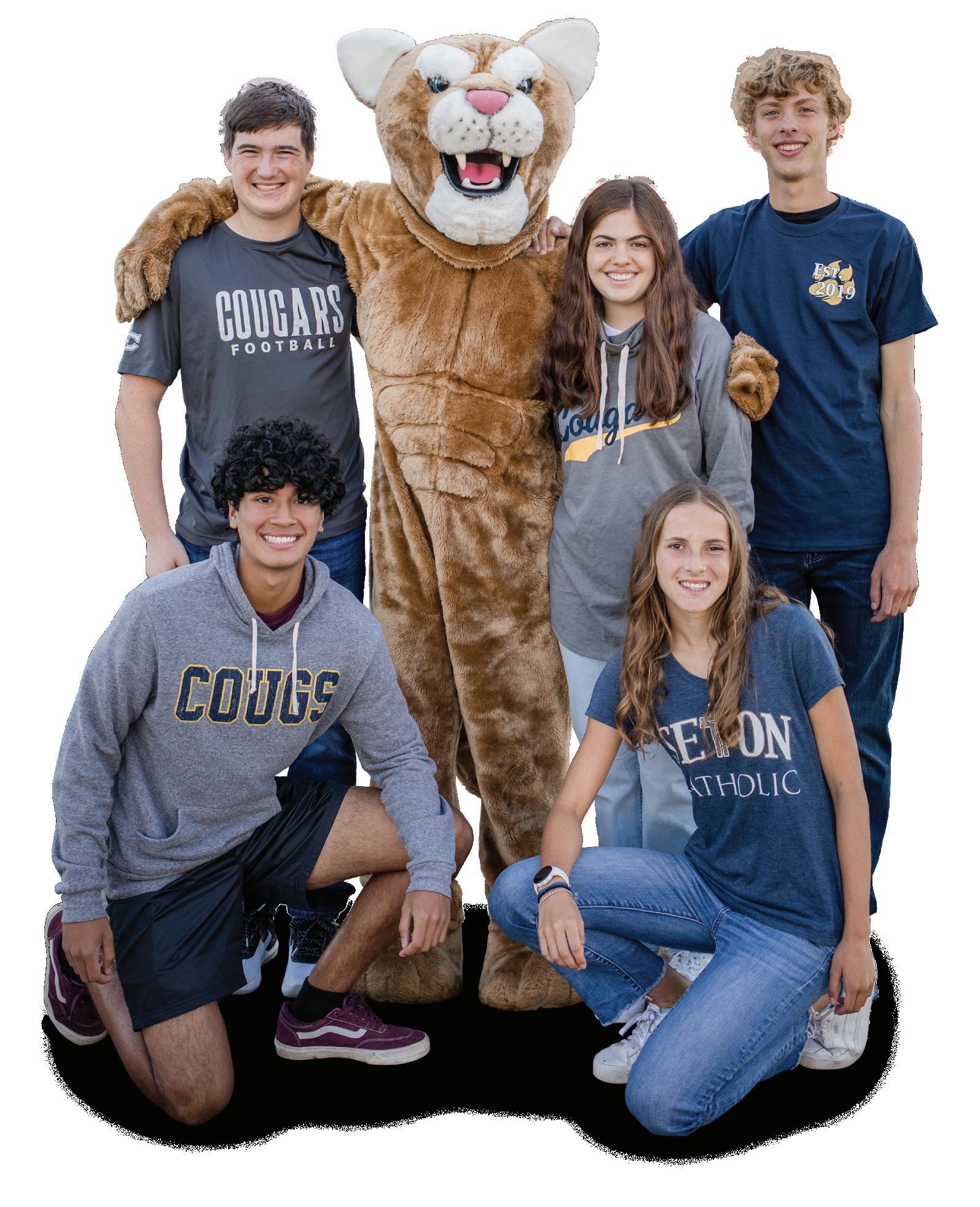
continued from page 16
Description: St. Andrew Preschool is nature-based and child-centered to encourage a sense of wonder as we honor the development of the whole child. We are Southwest Washington’s only Nature Explore preschool and we spend half of our time outdoors each day. Your child will explore the world through art, dramatic play, literature, music and movement. Mathematical and scientific thinking skills are investigated through emergent curriculum with a project-based approach. Our hands on experiences include cooking, gardening, and field trips. St. Andrew Preschool plants the seeds for lifelong learning by building a safe and supportive community following the example of Jesus.
Battle Ground School District
11104 NE 149th St. Brush Prairie, WA 98606 Phone 360-885-5300 www.battlegroundps.org
Camas School District 841 NE 22nd Ave. Camas, WA 98607 Phone 360-833-5400 www.camas.wednet.edu
Evergreen School District
13501 NE 28th St. Vancouver, WA 98668 Phone 360-604-4000 www.evergreenps.org
Green Mountain School District
13105 NE Grinnell Rd. Woodland, WA 98674 Phone 360-225-7366 www.greenmountainschool.us
Hockinson School District
17912 NE 159th St. Brush Prairie, WA 98606 Phone 360-448-6400 www.hocksd.org
La Center School District
725 Highland Rd. La Center, WA 98629 Phone 360-263-2131 www.lacenterschools.org
Ridgefield School District
2724 South Hillhurst Rd. Ridgefield, WA 98642
Phone 360-619-1300 www.ridgefieldsd.org
Vancouver School District
2901 Falk Rd.
Vancouver, WA 98661
Phone 360-313-1000 www.vansd.org
Washougal School District
4855 Evergreen Way Washougal, WA 98671
Phone 360-954-3000 www.washougal.k12.wa.us
Washington State School for the Blind
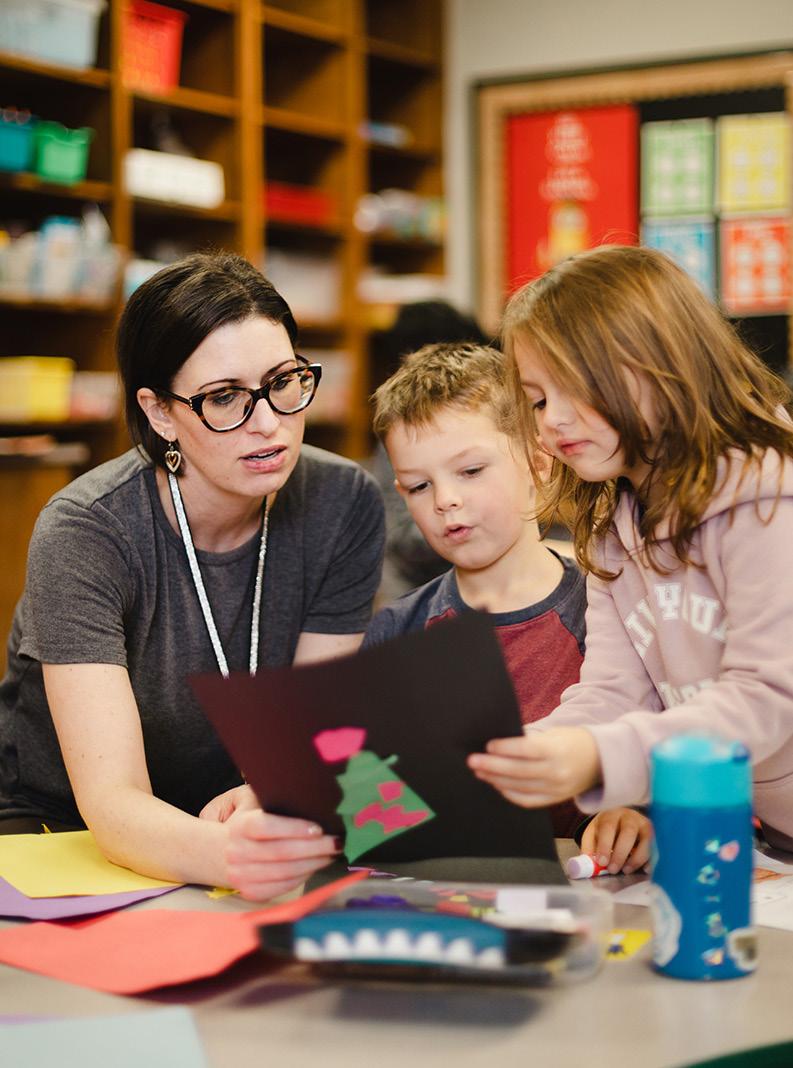
2214 E 13th St. Vancouver, WA 98661 Phone 360-696-6321 www.wssb.wa.gov
Washington School for the Deaf
611 Grand Blvd. Vancouver, WA 98661 Phone 360-696-6525 www.wsd.wa.gov
Washington State University Vancouver
Levels: Baccalaureate- and graduatelevel education
Location: 14204 NE Salmon Creek Ave., Vancouver, WA 98686-9600 Phone: 360-546-WSUV (9788) Website: Vancouver.WSU.edu
Clark College
Levels: Bachelors, associates, career and technical degrees, certificates

Location: 1933 Fort Vancouver Way, Vancouver, WA 98663 Phone: 360-699-6398 Website: Clark.edu
Lower Columbia College
Levels: Bachelors, associates, professional/technical degrees, certificates
Location: 1600 Maple St., Longview, WA 98632
Phone: 360-442-2311 Website: LowerColumbia.edu
NAACP Vancouver Branch launched its ACT-SO Enrichment Program to nurture and recognize the academic, scientific and artistic achievements of our region’s next generation of Black leaders. In its initial year, local students built skills, established goals and shared their passions on a national stage.
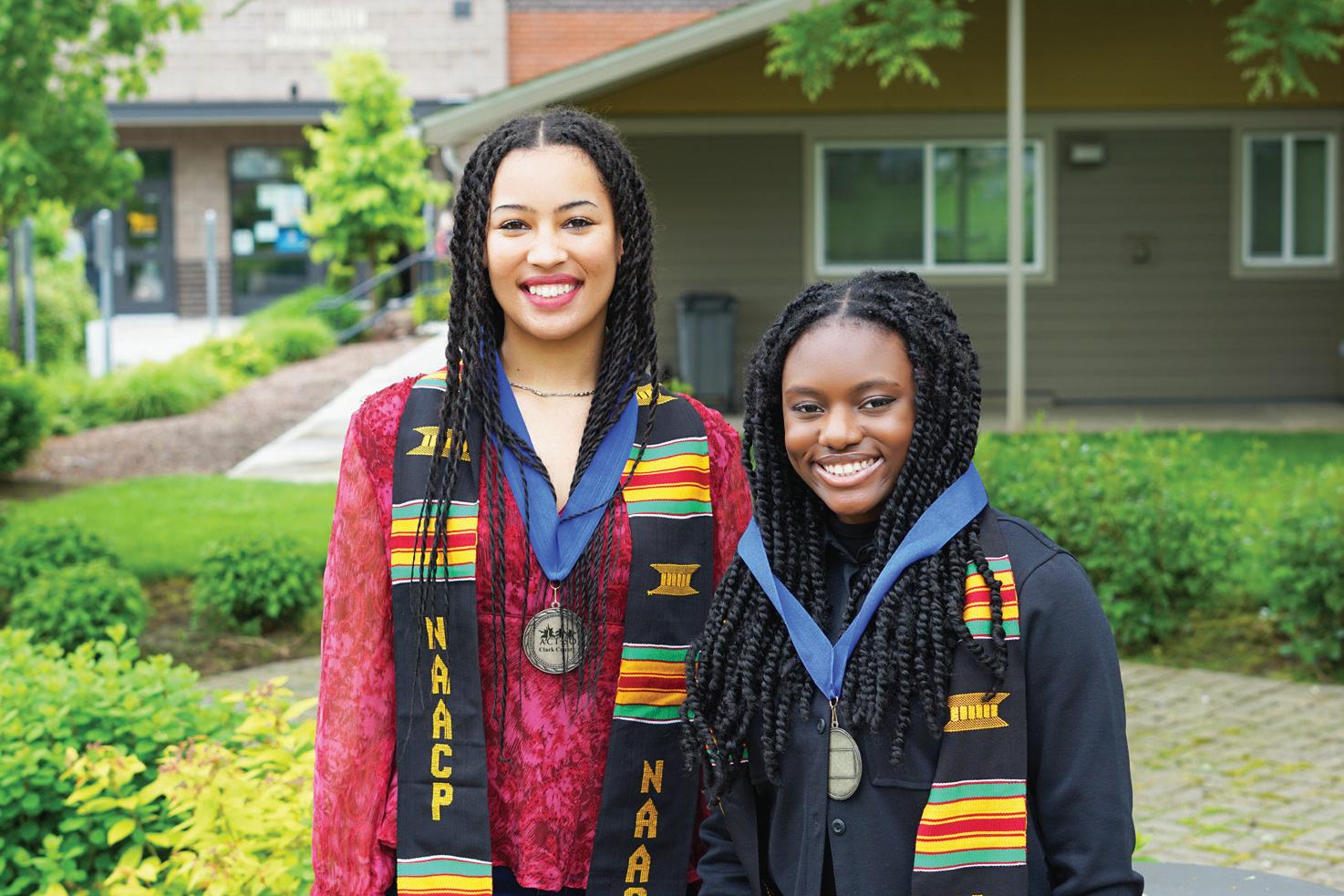
Now, we are taking our support even further with the NAACP Vancouver Branch ACT-SO Scholarship
This fund provides life-changing scholarships to outstanding participants who want to continue their creative and academic pursuits. With your donation, we can ensure local students have the opportunity to showcase their talents at the next level and in the communities of southwest Washington.
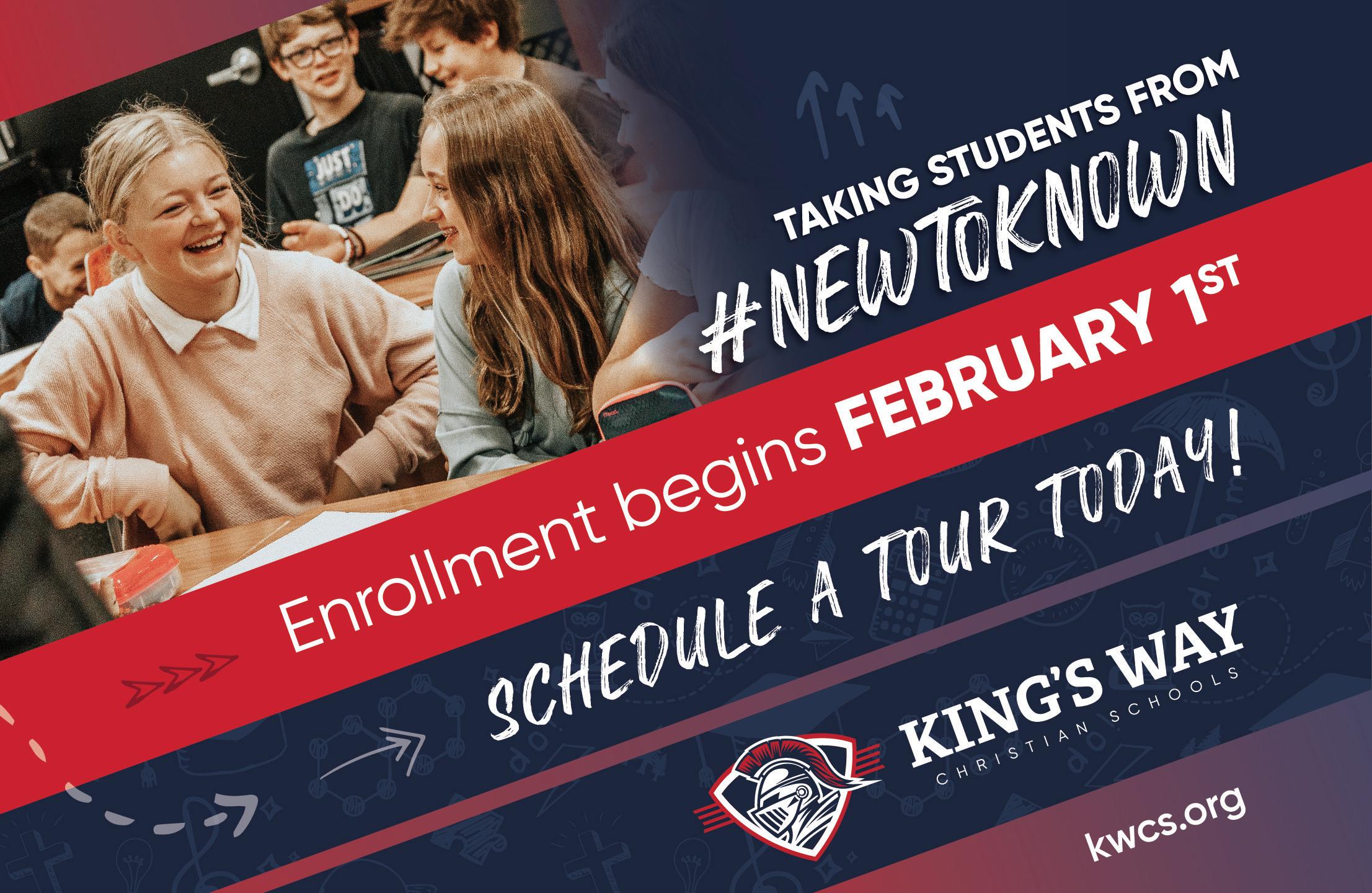

ANAHEIM REGIONAL TRANSPORTATION (888) 364-2787 rideart.org


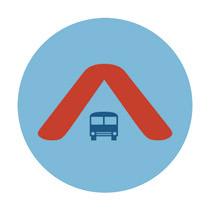

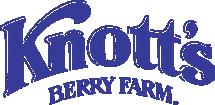










GREAT WOLF LODGE

12681 Harbor Blvd, Garden Grove greatwolf.com
•


STEELCRAFT

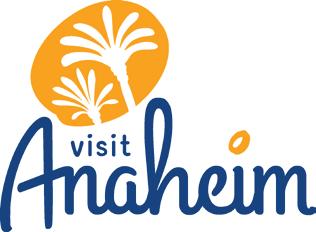
ANAHEIM GARDENWALK 400 Disney Way, Anaheim anaheimgardenwalk.com
DISNEYLAND RESORT Disneyland Dr, Anaheim disneyland.disney.go.com
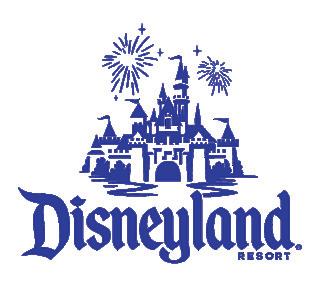
ANAHEIM PACKING DISTRICT 440 S Anaheim Blvd, Anaheim anaheimpackingdistrict.com
12900 S Euclid St Ste 150, Garden Grove steelcraftlb.com

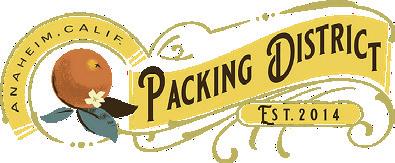
PIRATES DINNER ADVENTURE

7600 Beach Blvd, Buena Park piratesdinneradventureca.com
KNOTT’S BERRY FARM 8039 Beach Blvd, Buena Park knotts.com
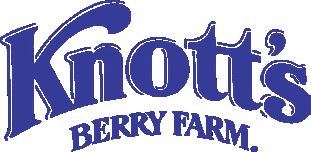
The kids at Esther Short Park see the Lego bricks, bubbles and rocket launchers on the tables from across the park, and their curiosity finally gets the best of them. They approach the table and are greeted with a warm smile and invited to play. This permission to play is all that they need. They immerse themselves in the toys and get lost in the experience of Columbia Play Project.
For people like Jeanne Bennett, these are the moments she lives for.
“It’s completely heartwarming to watch kids as they begin to tentatively explore toys,” she says. “They are not quite sure what they are allowed to touch and what they are not allowed to touch. The kids are usually quite gentle at the beginning, and then as they become more comfortable, they realize that the toys are there for them to play with and become more animated. Some kids will jump from toy to toy for just a few minutes and then come back. Other kids will dive in and spend 30 minutes or an hour playing with the same toy. I watched one little boy build a rocket out of magnetics, and after he had his rocket all the way built, he took it apart and did it again because he thought he could improve the design.”
Bennett has a vested interest in children’s
courtesy Columbia Play Projectplay because she’s made it her mission to promote play for the young and the young at heart. As board chair for Columbia Play Project, she wants to bring play to Southwest Washington. She and a few others created Columbia Play Project as a social enterprise dedicated to building a full-scale, high-quality children’s museum in Clark County.
“A few years from now, we hope we have a full-scale children’s museum that is an indoor facility with permanent and rotating exhibits,” says Bennett. “There will be various kinds of labs, like an art lab, a science lab, a computer lab, a music lab, a children’s theatre, a curated children’s library, an indoor and outdoor playground space, a restaurant and a gift shop.” It’s an ambitious goal that is needed more now than ever since the closing of Portland Children’s Museum left a massive hole in the Portland metro community. Thankfully for families, Columbia Play Project has been hard at work to fill that gap.
The idea for Columbia Play Project was sparked in 2019. A handful of committed individuals had just started to work on the idea of building a permanent children’s museum, but when the pandemic hit, they immediately tapped into their creativity. They listened to local families and decided
to bring the museum directly to them. That’s when Columbia Play Project’s Mobile Children’s Museum idea was born.
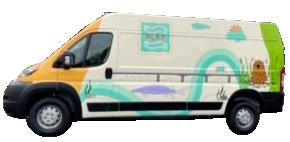
“We thought we needed to do something immediately,” said Bennett. “It seemed like having toys, and educational activities brought directly to the children in their own community would help people have access to play because everything else was closed.” Pop-up parties started popping up all over Clark County. From the get-go, it was a labor of love for people like Bennett. “When we started the pop-up parties, we didn’t have a Mobile Museum, so we took our toys in our own cars to local parks and events.”
The Columbia Play Project organizers realized the great need in the community for something like this. In 2021, 5,000 guests showed up to play, and that number more than doubled in 2022 to 12,000. The goal for 2023 is 20,000 people at a minimum. With the growth in popularity, Columbia Play Project volunteers and board members knew they had to continue to serve the community in a mobile way. The Cowlitz Indian Tribe granted funds and invested in the Mobile Museum. Now the group has a dedicated van and trailer to accommodate even more fun.



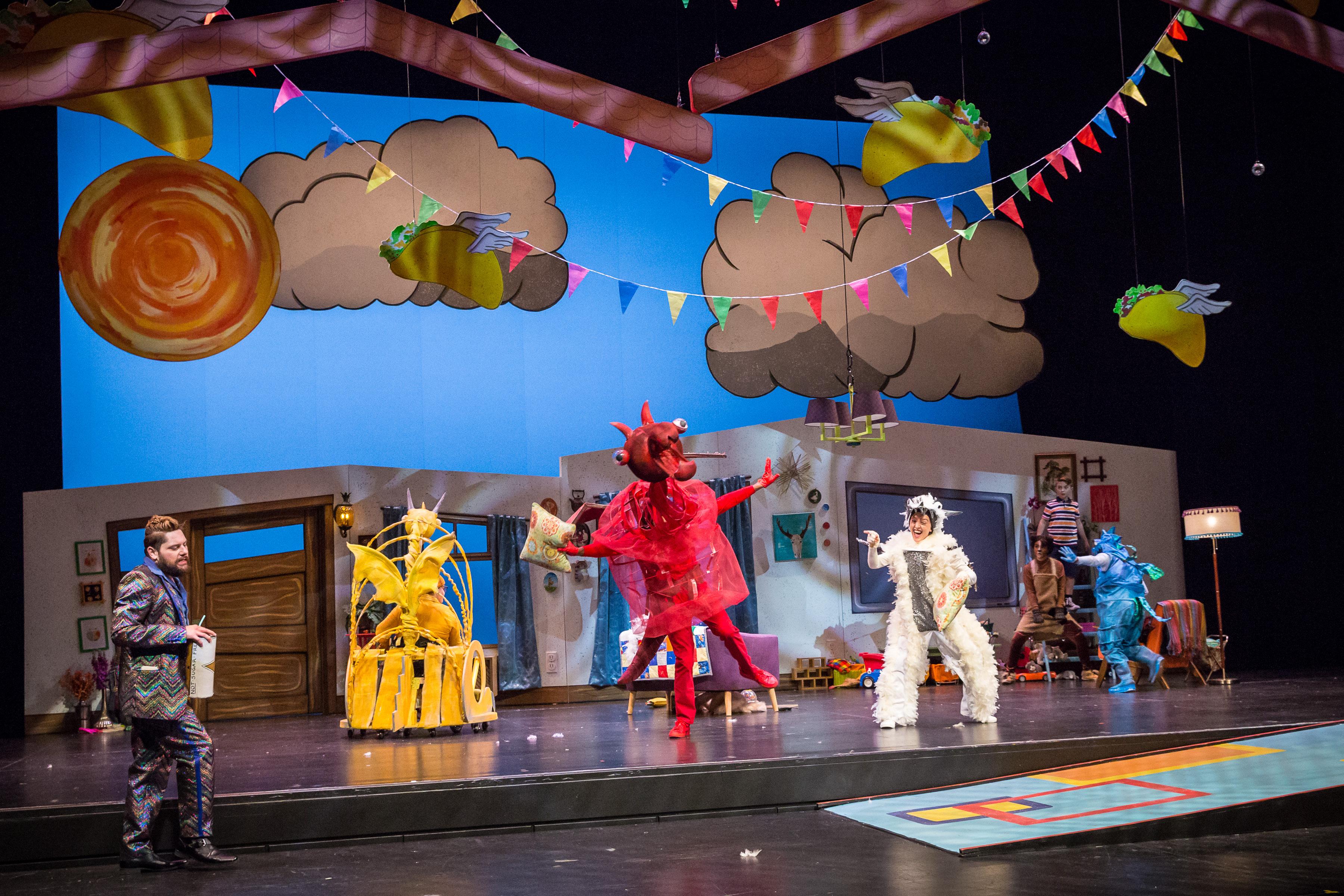
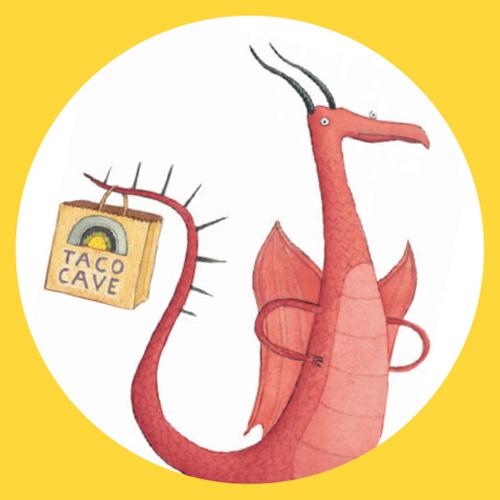
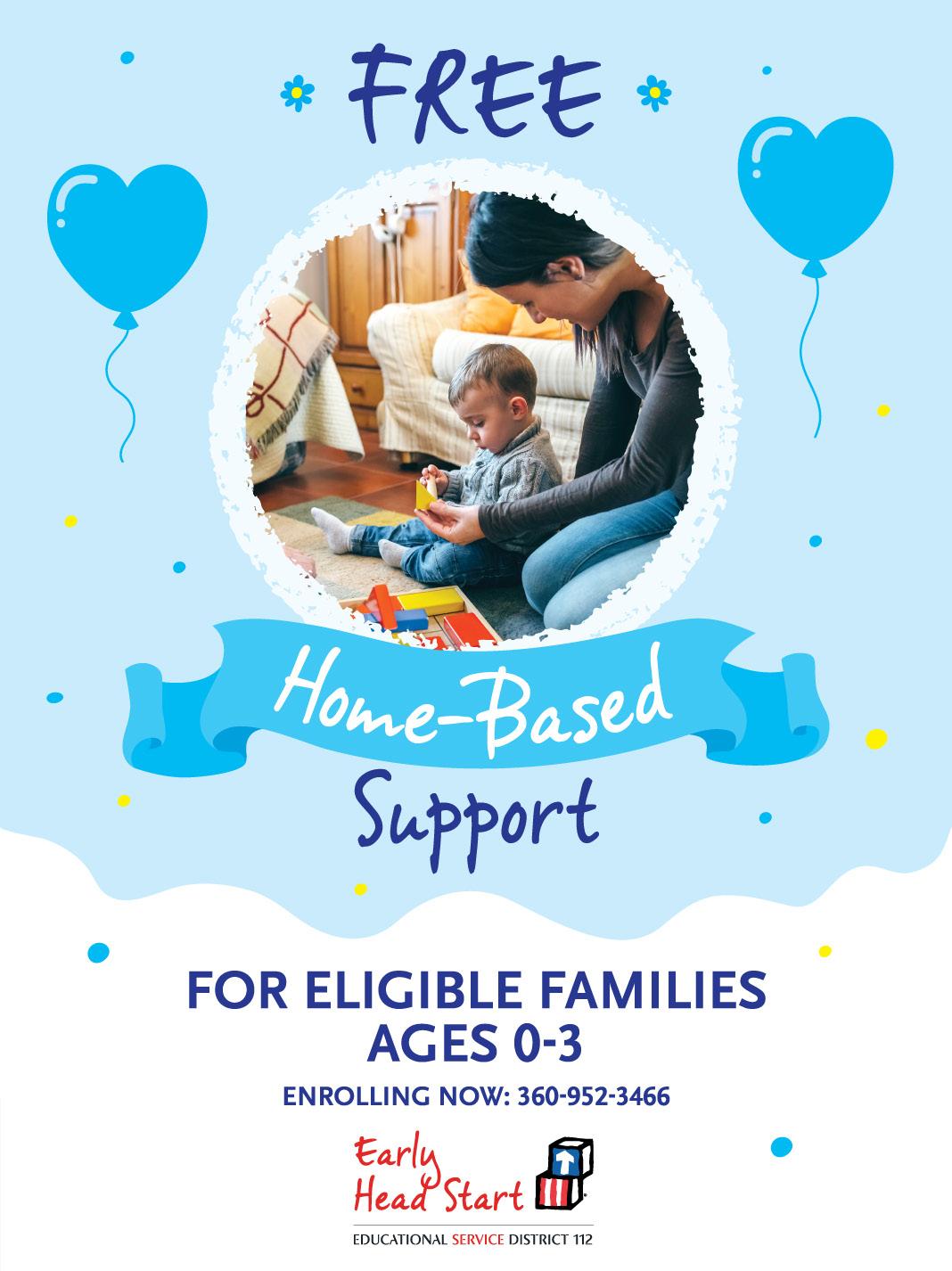
Alyssa Hoyt remembers meeting Bennett and immediately feeling a connection to the project. Now a board member and leader of the exhibit committee, she thought she could bring something unique to the project, having worked with children’s museums in the past. She is tasked with coming up with new mobile museum exhibits. “It involves a lot of creativity. We’ve done a lot of brainstorming as an exhibits committee about topics that would be really beneficial, that would tie into our local area, really centering around the Columbia River, a lot of natural resources that we have here in Southwest Washington [and] also centers on some of the industries in Vancouver and Clark County, like shipping, manufacturing, and tech . . . We want kids to be able to play and have fun and have open-ended experiences that lead to learning and curiosity and inspire them to keep playing and pursue their passions.”
These passions can be developed and fostered through the wide variety of offerings at the Mobile Children’s Museum. There is the Maker Space Art Space which provides kids with the materials so they can create whatever their hearts desire. The Lego Creation Station is
outfitted with thousands of Lego bricks and minifigs. To exercise those fine motor skills, there is the Brick Q Motion station, which allows kids to build all different kinds of creations and test them out. “It’s physics education at work, but the kid just thinks it’s a lot of fun,” says Bennett.
Little ones are also engaged and excited to see the colorful giant parachute and sack races laid out in front of them. “The Mobile Museum is a lot of fun to create exhibits for,” explains Hoyt. “It provides this constraint where we have to think creatively about what we want to go into it. They need to be portable, but they need to be engaging. They need to be durable but light enough to move them in and out because we want to engage as many people as possible. We might be taking exhibits to a park and into a hall at a church. And these exhibits need to be something that lots of people can engage with and have fun with, be colorful and exciting and also have a lot of practical durabilities.”
While the Mobile Children’s Museum was born out of necessity, Bennett and her crew have no intention of slowing down. In fact, Hoyt claims the exhibits are being ramped up in a big
way. “It provides a great way for us to reach out to people who may not be as interested in coming to a brick-and-mortar museum, and so we really need to consider who we are serving with these exhibits. It provides a lot of interesting problems, such as how can we make this visible, how can we bring people in, and how can we make this so when someone sees us from across the park, they want to come and check us out?”
The Columbia Play Project board is also looking into making the exhibits at the Mobile Museum and the future brick-andmortar museum something that reflects the life and culture of local families. In everything they do, the group looks to support the unique diversity and culture in Southwest Washington. One of those uniquely Southwest Washington topics is the idea of energy. The exhibit committee has taken that idea and run with it, working hard to create an energy and water exhibit in collaboration with Clark College.
Hoyt promises that the energy exhibit will look at all the ways energy is used in Southwest Washington, including solar, hydropower and even people power. “These are not going to be exhibits that you just sit and look at, and they are all highly interactive. There will be things kids can crank, things that kids can move, things that kids can touch and things that kids can experiment with. How does kinetic power work? How can I create a basket for one of our Columbia Play Project characters to ride down a basket from one point to another? And what can I do to reduce the friction on that?”
For the water exhibit, kids can either play in the water or pump the water from one location to another to see how the



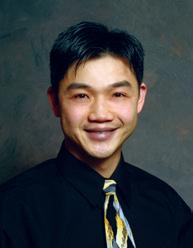

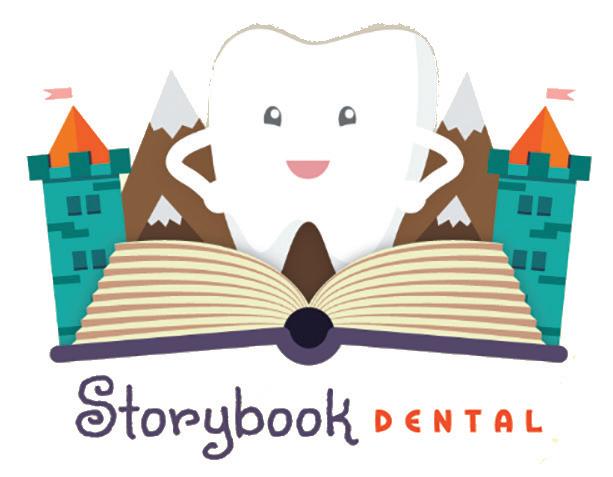

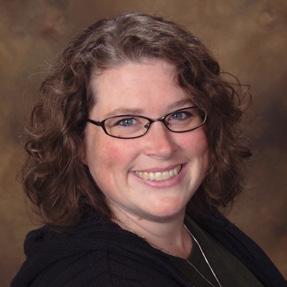
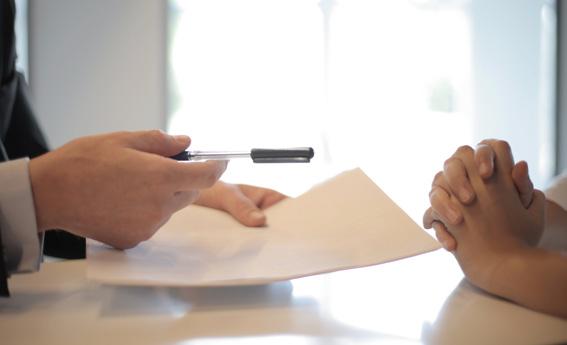
Feature: Play on the Go (cont'd)
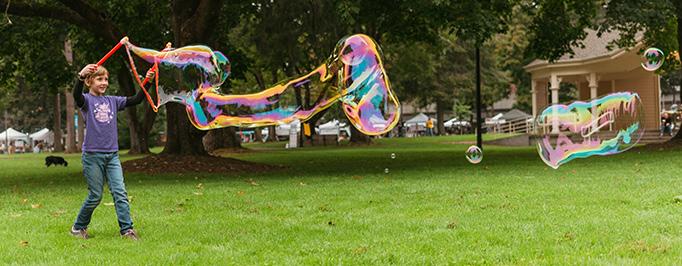
pressure changes things. Regardless of how they play with it, kids interact with the highly engaging exhibits. “That’s what drives me,” Hoyt says. “Seeing kid’s eyes light up when they make that discovery, when they make that connection, when you see them interacting with their families and be super excited about the learning that’s happening without even realizing they are learning.”
It may seem fun, but something amazing happens inside a child’s mind when they play. This is something Bennett has researched. “The benefit of play is really a kid’s work. When they play, there are a couple of different things that are happening from a neurological standpoint. They are building neural pathways that are the architecture for their future learning. As those neural pathways develop, kids learn better, whether in informal education like we do at Columbia Play Project or more formal education like what you do at school.”
Not only does play help develop the brain for future learning and success, it also helps build a strong and healthy body and makes a child feel good. “Play floods a child’s body with the positive hormones that make them feel better, the positive stress relievers like endorphins or oxytocin,” explains Bennett. “These natural hormones are created in the brain when a kid is playing. Then they flood the body and counter the cortisol, the stress hormone. That’s not only a benefit for kids, but it’s a benefit for the adults playing with them. Doing this together is a great way for kids and their caregivers to bond and feel happier and less stressed.” On a personal note, watching a child play is fun for Bennett. “I love to watch kids get
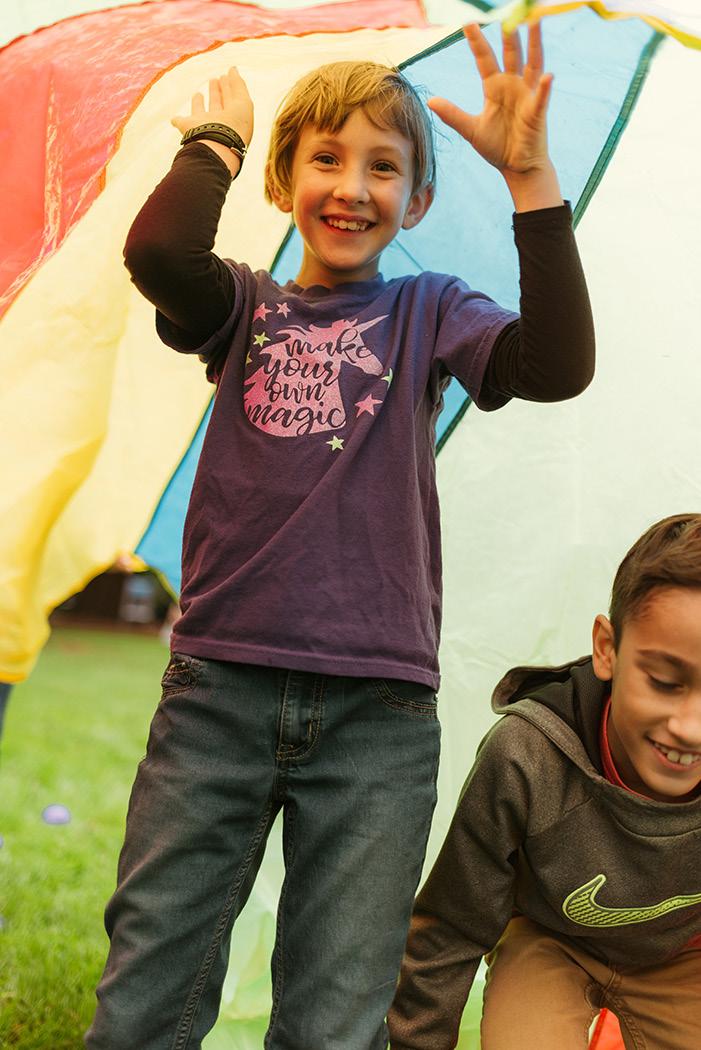
absorbed in that work because that is how we know their brains are developing.”
That importance of play is felt at the Mobile Children’s Museum and will be emphasized eventually when the full-scale museum is built, says Hoyt. “We really want to focus on [offering] a museum of play, that this is a place where kids can come and decompress and be kids and that parents and caregivers can see that and play right alongside the kids. This isn’t a place to be stuffy, it isn’t a place to be retrained, it is a place where kids can be kids and really discover through play who they are and who they can become.”
Nothing is better than exercising the brain, feeling happier and less stressed. And now that fun is available and ready to be delivered right to your neighborhood. The Mobile Children’s Museum can be used by businesses hosting picnics in the summer, or it could be booked by PTAs for their local schools. Neighborhood associations, clubs, parties, churches, really anyone can request the Mobile Museum for their event. The funding that comes from the Mobile Children’s Museum will go on to fund the permanent museum that is on its way to being built in Clark County.
Kristen Flowers is the host of the morning show Nick and Kristen in the morning on 99.5 The Wolf. She lives in Vancouver and currently blogs for her own website, www. accordingtokristen.com. She moderates the Positive Parenting Posse on Facebook, a page dedicated to sharing positive and helpful tips about parenting. In her spare time, she’s working on her debut novel and making everything she possibly can on her new Cricut maker.



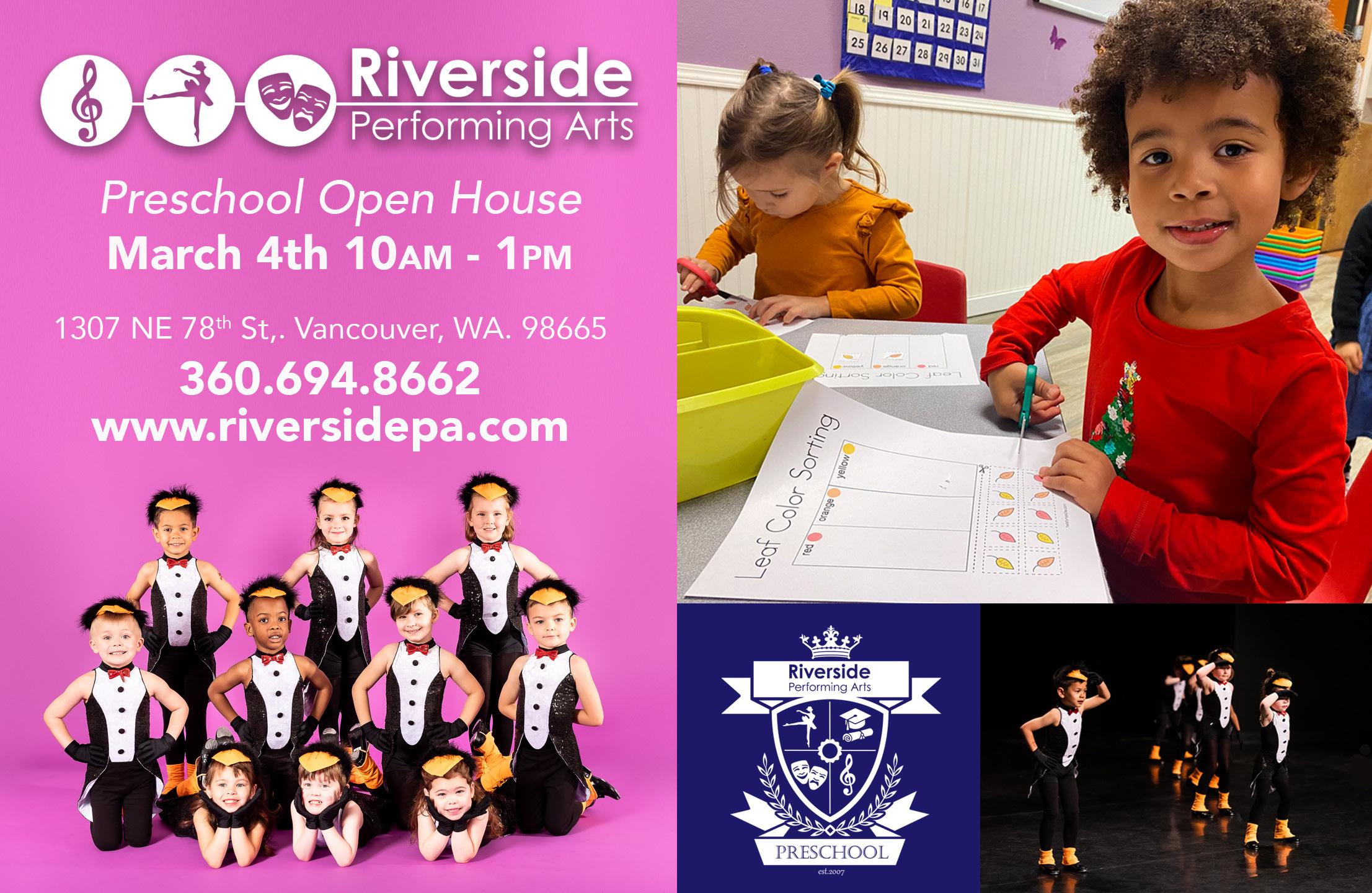


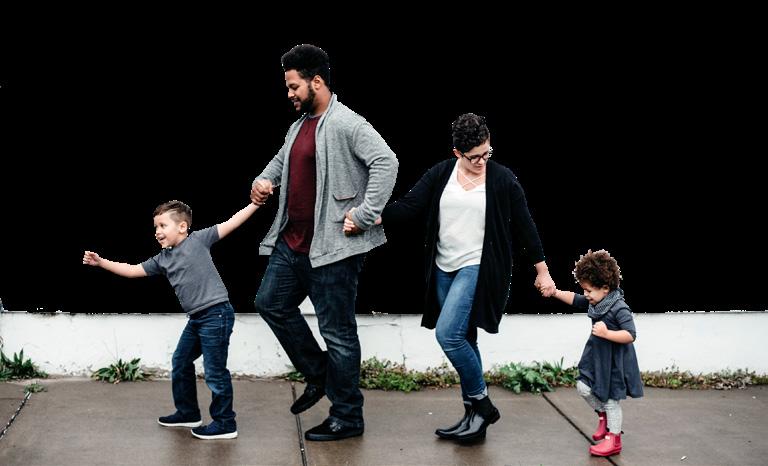






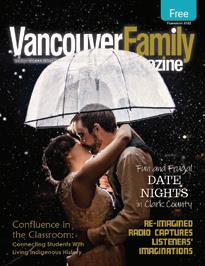
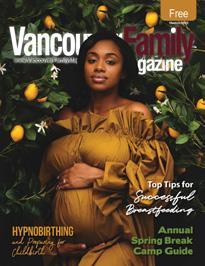

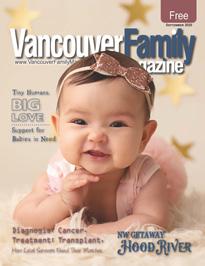
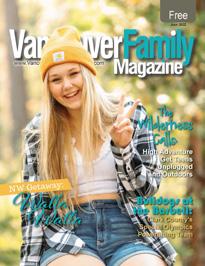
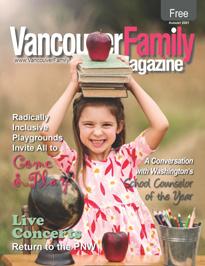
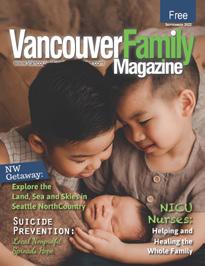
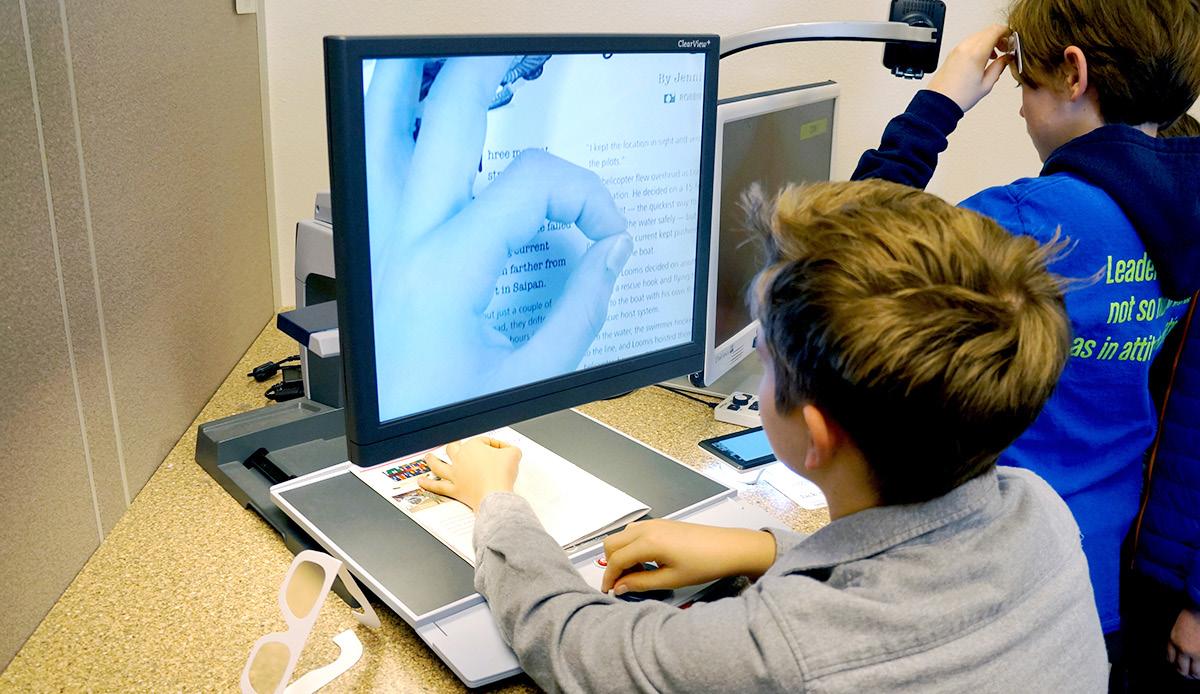
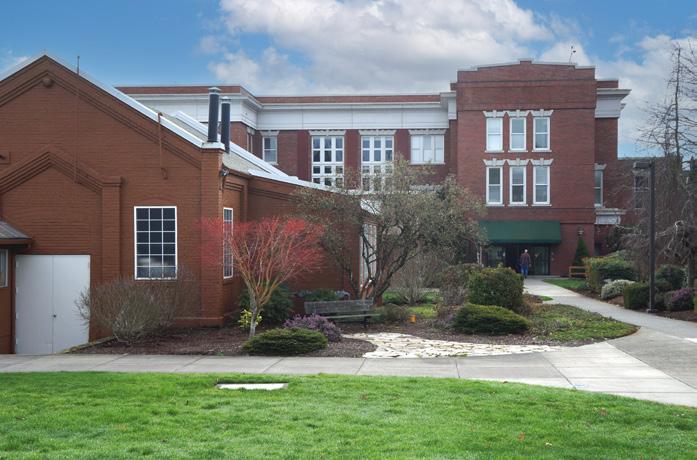 By Sarah Mortensen
By Sarah Mortensen
As an elementary student in Castro Valley, California, Maggie R. enjoyed her friends, music and playing outside in the sun. Like many other students, she loved reading and her teachers. But in one way, Maggie was unlike most of her classmates because Maggie used (and still uses) a white cane to help her navigate the world. Due to her blindness, Maggie also had a one-on-one para-professional at school who helped her to find her way safely, learn to read Braille and move as independently as possible. Every worksheet and reading assignment was transcribed into Braille for her by a certified Braillist. Castro Valley Elementary offered an integrated program that served both mainstream and visually impaired students together. Including Maggie, there were seven students in her school with low vision who needed adaptive technologies in the classroom to help them learn alongside their classmates.
As Maggie grew older and middle school approached, Maggie’s family considered her next steps. As blind children grow up, the need for them to gain independent living skills increases. Each state has at least one school exclusively dedicated to helping visually impaired students thrive, but challenges arise if they don’t live
near one of these schools. COVID had allowed Maggie’s dad to work remotely, and they had talked about moving closer to their extended family in Washington. As Demarae, Maggie’s mother, was looking at places to relocate in Washington, she discovered that Washington State School for the Blind (WSSB) was in Vancouver. Demarae called the school to learn more about the services and classes they offered and spoke with Jennifer Langley, assistant director of on-campus programs, who was so enthusiastic and welcoming that she had a school schedule drawn up for Maggie the very next day. Demarae and her husband hadn’t even looked for a new house yet, but they saw it as a sign that relocating to Vancouver was the right move.
Located near Hudson’s Bay High School, WSSB is registered as a Washington State Historic Site—the school was founded even before statehood was granted. The main building, built in the early 20th century, looks like a classical university; the red brick structure sits atop a small hill with neatly stacked large windows across all three stories and white Doric
Top: A group of public school students visits Washington State School for the Blind and learns about technologies that help people with vision impairments. Photo credit: I-Shuan Warr
Middle: Maggie R.’s family moved to Vancouver from California to be near extended family and to give Maggie an opportunity to attend WSSB. She’s involved in track, student council and various clubs. Photo courtesy Maggie R.

Bottom: Washington State School for the Blind’s campus includes a building registered as a Washington State Historic Site, built in the early 20th century. Photo courtesy I-Shuan Warr.
pillars covering a staircase leading up to the front doors. However, this building now serves as the administration and outreach offices; the modern school is located behind the main building, with sensory gardens and an adaptive playground and running track in between. Thirteen acres in all, the beautiful grounds are connected by easy-to-navigate pathways with statues of children at play. In the earliest years, the school was combined with the School for the Deaf, though both schools still work closely together (being less than a mile apart), to serve students who are both blind and deaf. Both schools are also residential schools where students whose families live too far to commute each day can live in cottages during the week on campus.
To attend WSSB, students must have a documented visual impairment and receive specialized services through an Individualized Education Plan (IEP). WSSB serves students in grades 6-12, and has a young adult training program called Learning Independence for Today and Tomorrow (LIFTT) for students who have graduated.
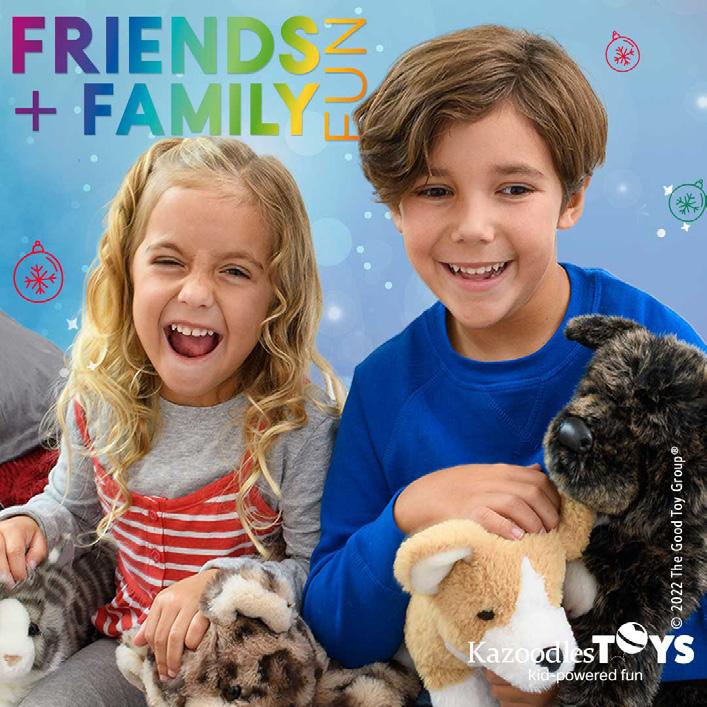

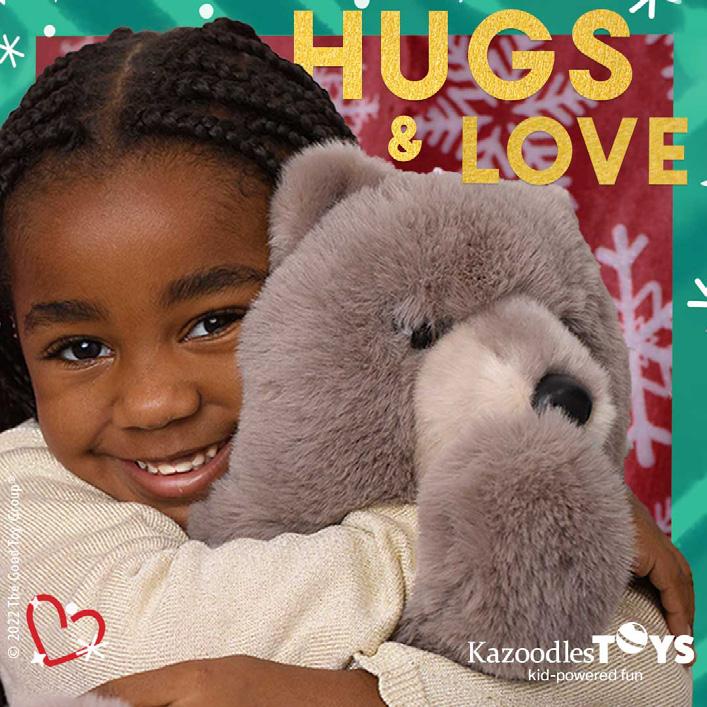
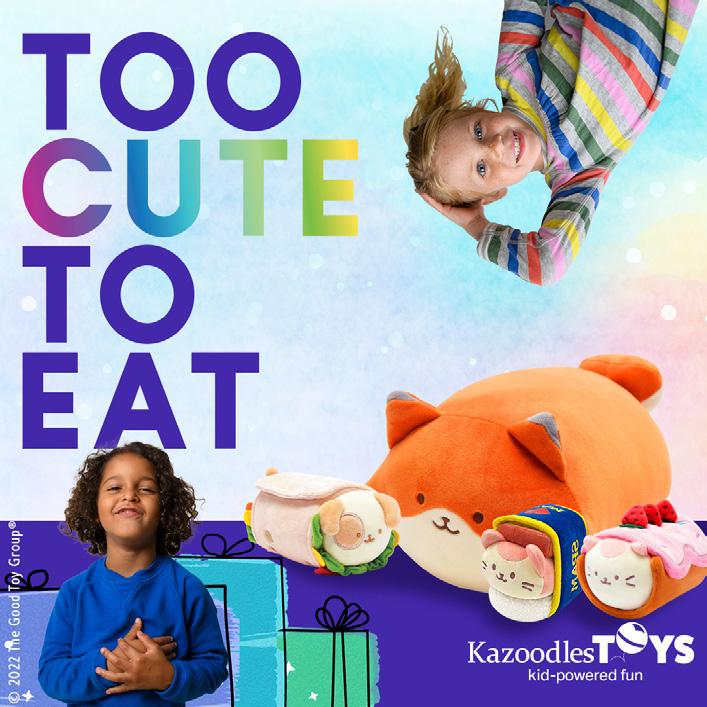
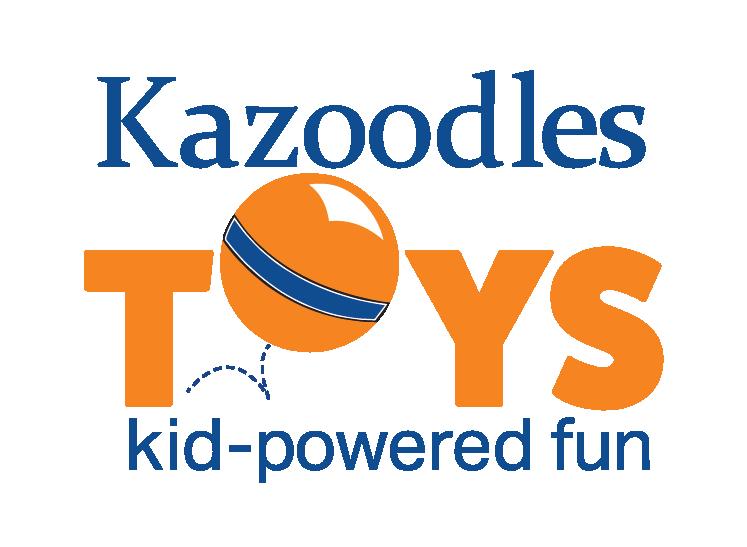


Of the 66 middle and high school students who currently attend, 48 live in the residential cottages. These students receive additional support after the school day is over. Residential life counselors help students learn to cook and do their own laundry. Similar to a college dormitory, each student has their own room, but shares a common living space, bathroom and large kitchen. The living area is fully equipped with computers, CCTV, a piano, toys, games and adaptive equipment. After-school clubs and excursions keep kids busy, social and always learning. At least once a week they practice cooking skills, on Monday nights students join up in the fitness building and recreation center for swimming and other activities such as trivia or bingo. Additionally, students may participate in team sports such as goalball (a paralympic sport) and powerlifting throughout the year. Other outings include downhill skiing, hikes, snowmobiling, visits to the pumpkin patch, movies, bowling, archery and more. Maggie especially enjoyed a four-day science camp called Island Wood.
Maggie is now an eighth grader at WSSB. She told me that she doesn’t have a favorite teacher, but her favorite class is English, because she loves reading and writing, and maybe even wants to be a writer when she grows up. Her mom has witnessed Maggie “bloom” in the last couple years since attending WSSB. “She has friends and they hang out after school in the cottages and at activities. She found other kids that she had a lot in common with. They like music and reading and they write stories together all the time.” Maggie concurs, “We don’t talk about blind stuff We talk about music.”
Before my tour of the school, I asked Maggie what would stand out the most to me at a school for the blind. For example, would there be a conspicuous lack of whiteboards? In actuality, the classrooms look like an average high
school classroom. Many students have some vision and simply need extra tools to see the board. What did stand out to me was the breadth of services on campus. Everything, including the swimming pool, had some adaptation for the students who attend. On a tour of the campus with principal Sean McCormick, he showed me some of the most commonly used adaptive equipment. There were textured dice and refreshable Braille displays so kids could play math games together. Maggie says she uses her refreshable Braille display “a lot” since it connects to her phone and iPad, allowing her to receive and send messages easily. The library was also impressive; I discovered most books that students use are checked out through the BARD app which allows users to download books from the National Library Service for the Blind and Physically Handicapped. There is also access to books from the Washington State Talking Book and Braille Library in Seattle.
While walking the grounds with Principal McCormick, he stated that while each program is customized and every teacher specially certified to help blind students, “what they get out of the experience goes beyond what is documented in their education plan.” He went on to explain that high school is a time when all teens are trying to define their identity. Outside of WSSB, the first thing people notice is their blindness but, “when students come to WSSB they aren’t defined by their disability.” Demarae agrees. She noticed that “in mainstream school, though the education was great, [Maggie] didn’t have many friends and I think that’s because the kids knew her as the ‘blind girl’ and didn’t bother to spend the time to get to know the rest of her. At WSSB they all know they have visual impairments, it’s not a novelty, so the kids quickly moved to getting to know each other on a deeper level.” Maggie has definitely found her place in school, stating, “I run track, I’m in the Cats
on page 34
Top three photos: WSSB has a fitness building and recreation areas where students can stay busy, exercise and socialize with other students.

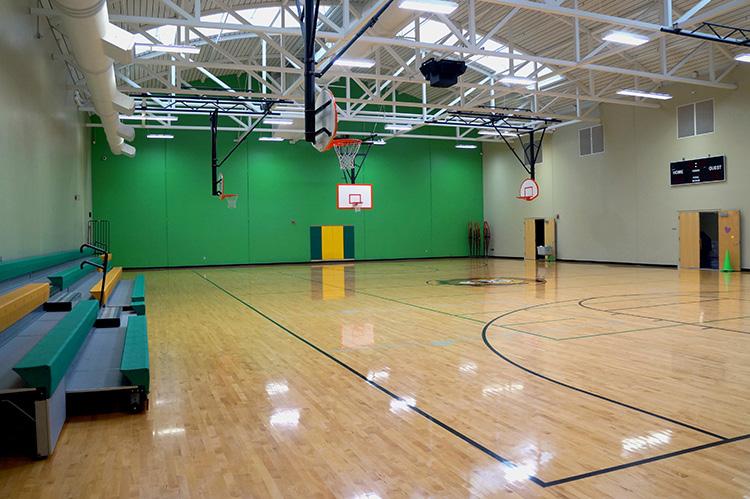
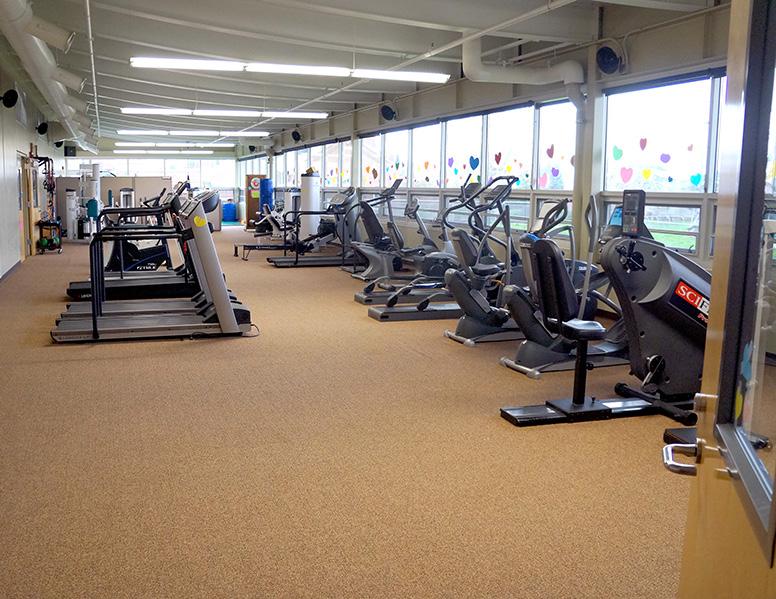
Bottom two photos: Students from WBBS participate in a dragon boating field trip and a White Cane Day event. Photos courtesy WSSB.
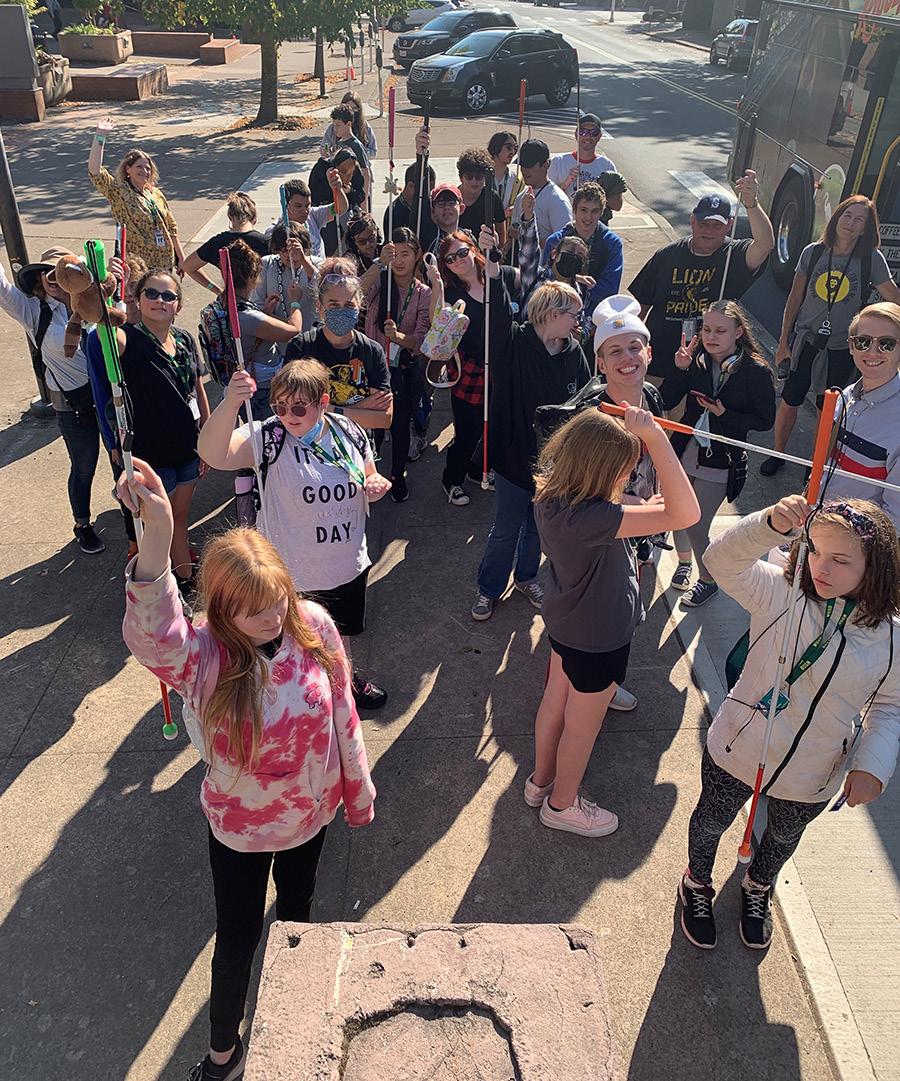
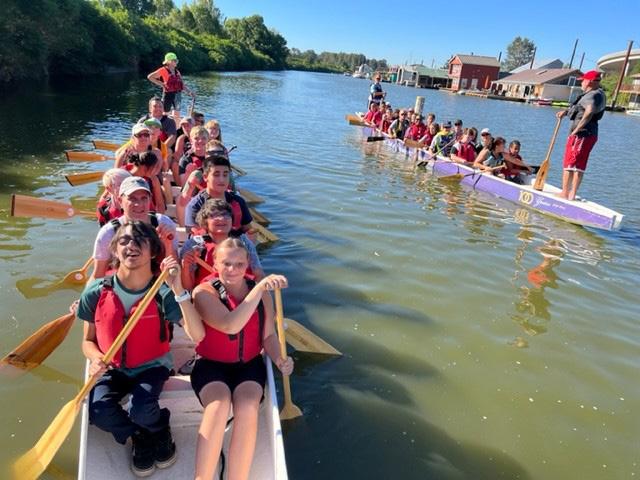


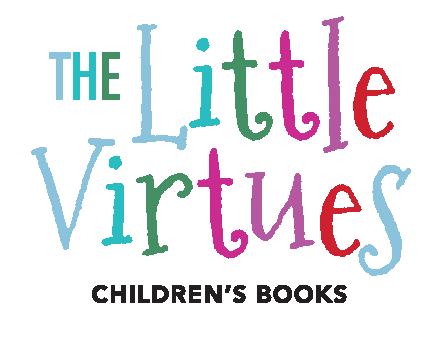

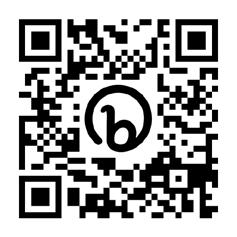

& Mats club, which makes cat toys and snuffle mats for dogs and donates them to the humane society. I’m also on student council, plus I do a bunch of after-school recreation activities.”
As a small and highly specialized school, WSSB does not offer as many classes as a traditional high school. For example, WSSB does not offer foreign languages, upper-level math classes or some performing arts. To meet graduation requirements, some students take classes at nearby Hudson’s Bay High School or through Running Start at Clark College. Just like at Castro Valley Elementary, the class work is Braille-transcribed for WSSB students. Having the experience of being off-campus provides an opportunity for them to learn to advocate for themselves without the extra support built into WSSB. Still, with many crossover students attending some Hudson’s Bay classes, there is plenty of communication between the administration and teachers at both schools. Maggie is thinking about taking theater at Hudson’s Bay next year.
In addition to the regular classes needed to graduate, students also enroll in Orientation and Mobility and Independent Living Skills which helps them learn to be independent, including crossing streets, riding buses and using a cane in the best way. This part of the education experience is what draws many families to choose WSSB for their child with low vision. “ The independent living instructors help you learn the safest and most effective ways to live independently with self-care and in the kitchen, organizational skills,” shares Demarae. “Many of the instructors are visually impaired themselves, so they understand these kids. It’s a special thing to be around those who get your struggles and understand your successes in such
a unique way . . . There is just a strong and supportive atmosphere when you are surrounded by people who have been trained to know adaptations that will help you succeed. They know Braille, they know what CCTVs and magnifiers are, and the tech department can fix anything!”

Principal McCormick stated that they are lucky to be a fully staffed school as there is a shortage of qualified teachers for the blind across the United States. When I asked why teachers pursue this particular field of education, he shared that many teachers have a personal experience of some kind with a friend or family member who is blind and, “for many others, the opportunity finds them, and they fall in love with being a champion for students who may be further from educational justice.” He went on to say, “Being a school for the blind, we have
to find ways to make learning meaningful beyond books and provide opportunities for students to broaden their view of the world and prepare them to be successful beyond graduation. All students deserve the opportunity to achieve their dreams, goals and embrace the power of who they are.”
The Individuals with Disabilities Education Act states that students are entitled to receive a free and appropriate public education in the least restrictive environment. For most special needs students, the guarantee to be included with their peers rather than separated is meant to ensure all students get equal access to learning. Interestingly, WSSB is considered the most restrictive environment as it is a completely separate school. Some parents, whether because of location or simply personal preference, choose to have their child with low vision attend their local school. This is entirely the choice of the family, but the WSSB is still there to support them.
After my visit, I was surprised to learn that the on-campus education is the smallest part of the programs the school offers. Each summer, there are camps for low-vision students across Washington that give them a taste of what WSSB has to offer. One of those experiences is a Sensory Safari located inside the administration building. It’s a collection of taxidermic animals which visitors are allowed to touch. They can feel the claws of a lion pouncing on a gazelle and run their hands through the hair of a bear. For many blind people, all they have known is the description of the animals. Touching them allows them to “see” them for the first time, bringing them a higher degree of understanding.
In addition to fun camps, WSSB provides resources and training for teachers of
"All students deserve the opportunity to achieve their dreams, goals and embrace the power of who they are."
-Principal Sean McCormickTwo-year-old Azalea S., of the Tri-Cities, benefits from WSSB's outreach program, which provides trained teachers and resources for blind and low-vision students across the state of Washington. Photo courtesy Jill Stetter.

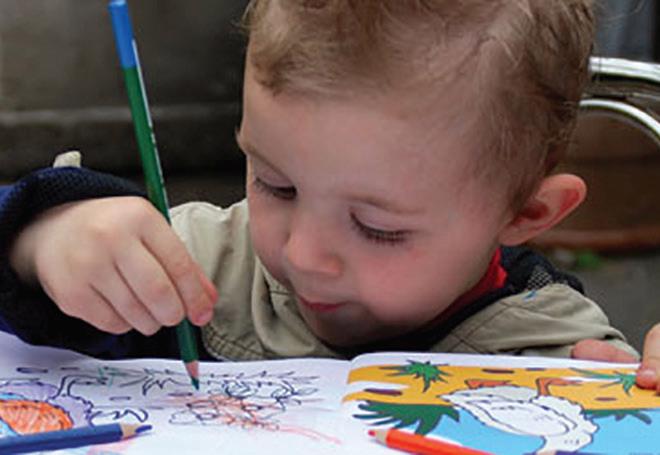


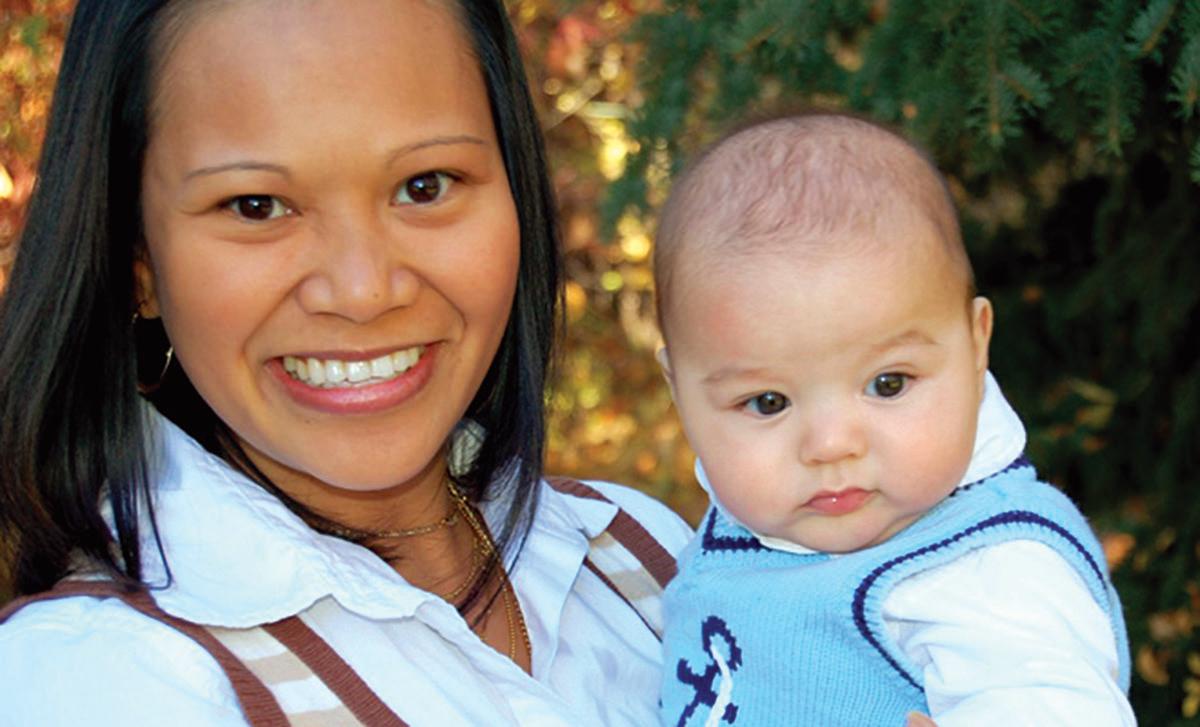

students with visual impairments (TSVIs). It’s estimated there are almost 2000 blind or low-vision children in Washington state. Most are served in their local schools and many districts have hired their own TSVIs. For smaller districts, WSSB fills in the gaps. There are over 220 students ages 3-21 being served across the state by WSSB Outreach itinerant teachers. Pam Parker, director of outreach at WSSB, explains, “We work to support local school districts, educational service districts, early intervention provider agencies, special and general education teachers and families to ensure that every blind, lowvision and deafblind student in Washington state has the supports and services they need to succeed.” These teachers bring both their expertise and technology so that students have access to learning tools and strategies at every stage of their education, including preschool. As the name implies, the itinerant staff rotate from area to area helping both the educators and students in their learning goals. To help coordinate and support their effort, all teachers can access the E.V.E listserv which stands for Everyone for Blindness/ Visual Education. E.V.E. works as both an archive and ongoing communication tool for educators to answer questions, research best practices or ask specific questions to the group. E.V.E. has been so helpful that there are many people subscribed to it outside of Washington state. “We often have questions posted from around the country,” says Parker. “It is also a place where information regarding events, trainings and other information is disseminated.”
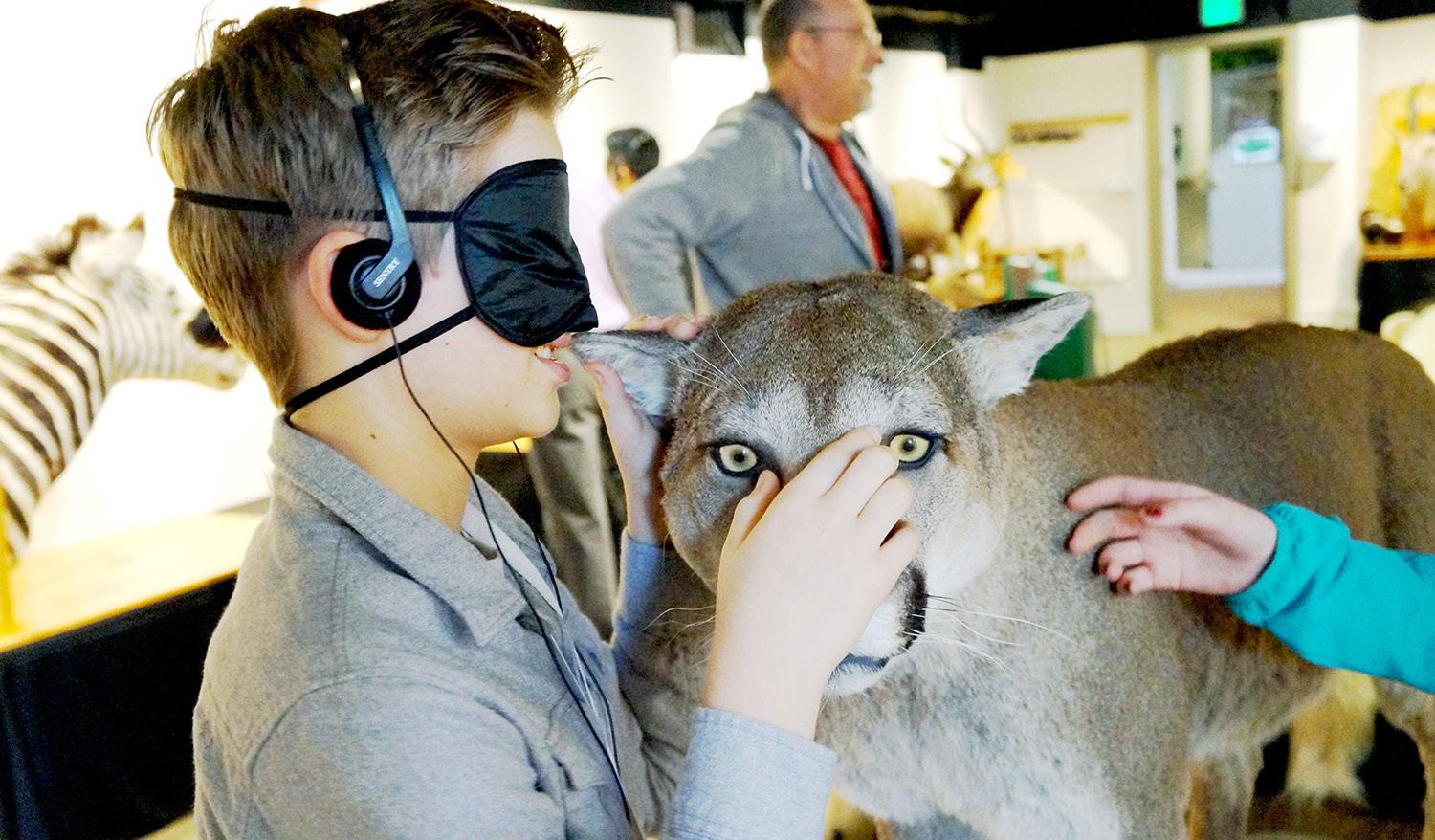
Even before age 3, there are supports that families of blind, low-vision or deafblind children can access through WSSB. Supporting the whole family from birth is key to putting their child on the best path
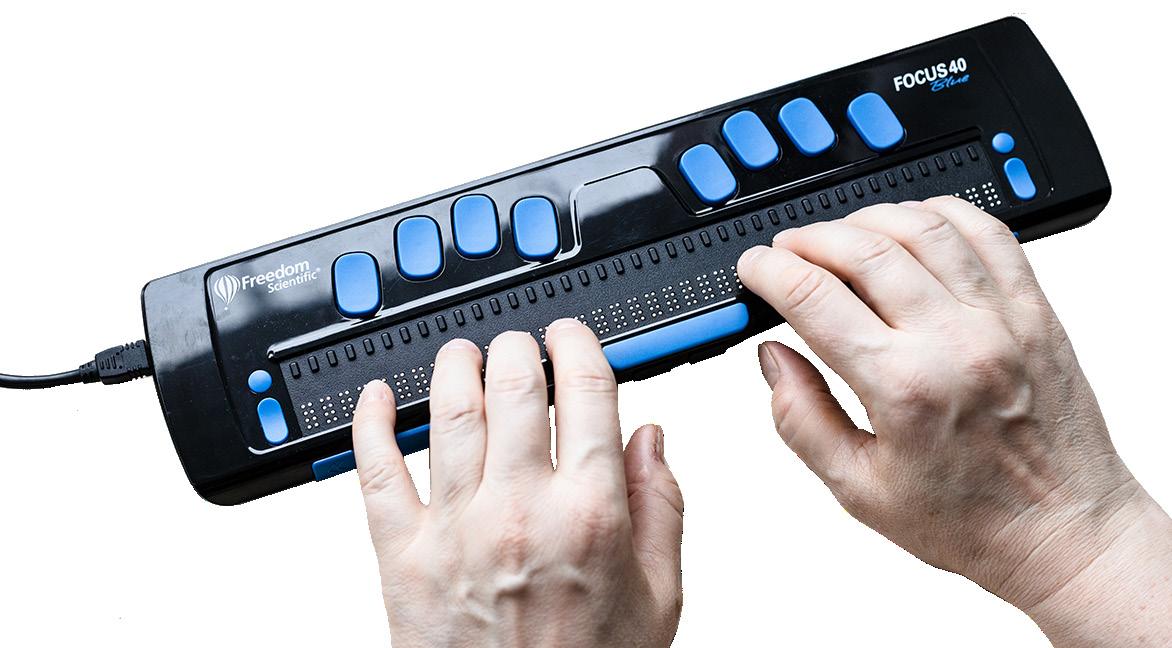
forward in their education, even before they enter a school. “We currently have 100 children and families whom we are serving as part of our Birth to Three Outreach Program,” shares Jessica Chandler, associate director of outreach, birth to age 5. “[We support] infants and toddlers by providing family-centered coaching during our home visits in the child’s home, daycare or other natural environment . . . Home visits might include helping a parent position a toy so that a child might play more purposefully, providing strategies to adapt a child’s environment to help the child see their sippy cup and spoon better during mealtime.” Just like with other young children, families are encouraged to foster early literacy skills such as recognizing Braille letters and, once the child begins walking, encouraging them to use a long white cane. “Every family is different and every home visit is different. The challenge of meeting each family’s unique needs is a fun part of the work we do.” Families who qualify receive Braille books, shape sorters and even Braille writing devices through federal quota funds, “just like school-aged kids,” shares Chandler.
It was these types of services that Maggie received early on while living in Castro Valley which helped her to develop the love of reading and writing she has today. The family support helped Demarae know how to help her child while not “overhelping” and allowing her space to grow and learn from mistakes. “As a parent of a blind child, I have learned that blindness is a barrier to very few things,” affirms Demarae. “As a person who constantly relies on sight to do the basics of life, it used to seem impossible and miraculous that someone without sight could cook or get themselves to work. I know better now. With some description and practice, my kid can do anything.”
Sarah Mortensen recently completed her degree in marriage and family studies and works for Vancouver Public Schools as a paraeducator in addition to her role as associate editor of Vancouver Family Magazine. When Sarah is not reading to her kids or students, she is probably in her backyard taking care of her garden. She also enjoys hiking, hot chocolate and dressing up for Halloween. She lives in Vancouver with her husband, son and daughter.
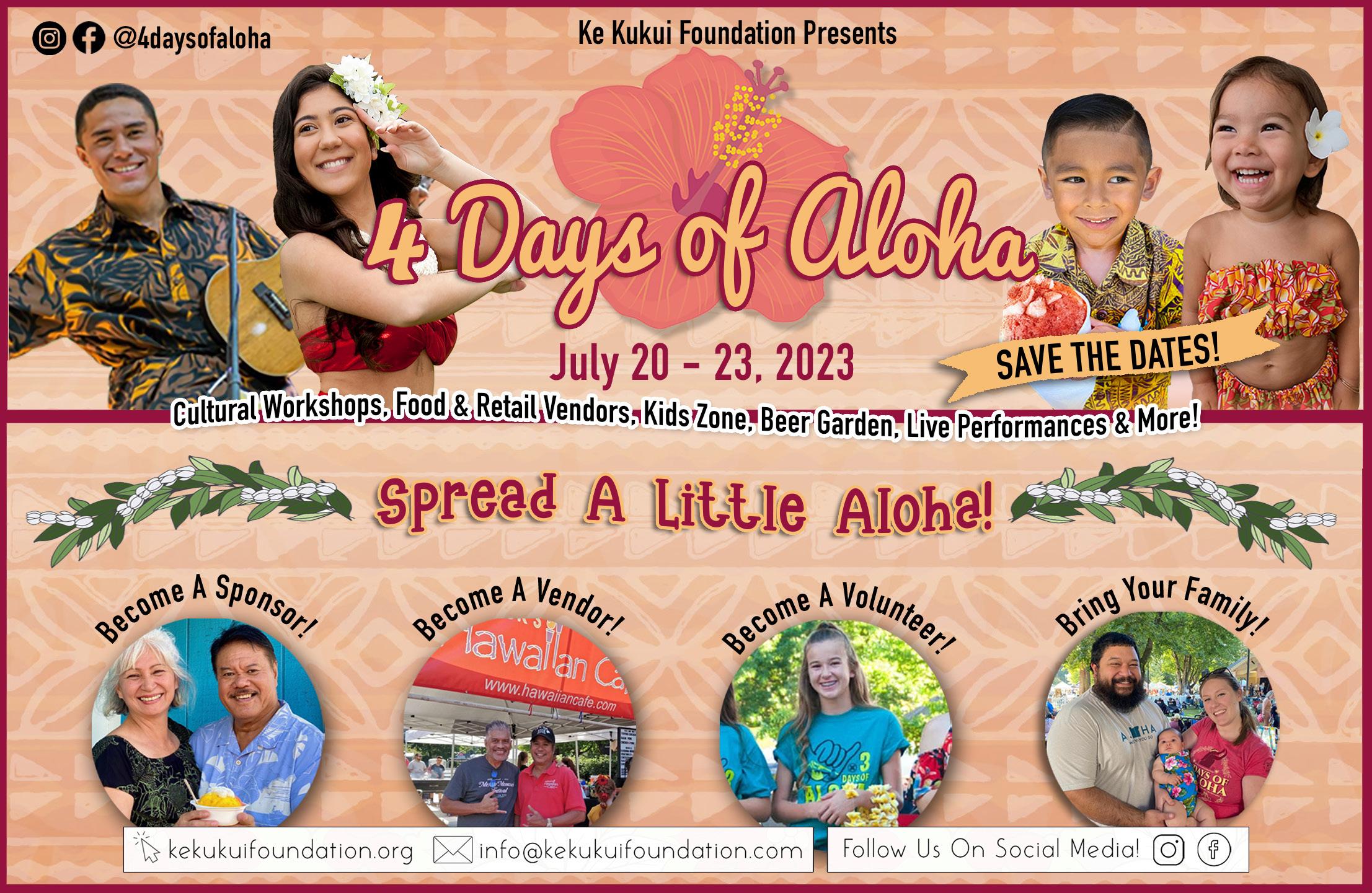







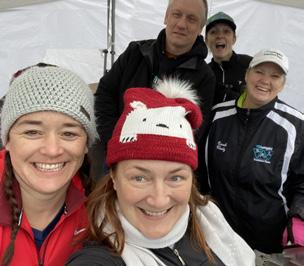
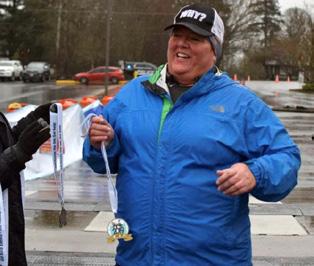



ZooLights at Oregon Zoo, 4001 SW Canyon Rd., Portland. Visit the dazzling display of 1.5 million lights, at the walk-through or drivethrough events. Tickets $16-$21, or $65 per car for drive-through, available at oregonzoo.org. 4:30-8 pm
ZooLights at Oregon Zoo. See Jan. 1 for more details.
ZooLights (Drive-Through) at Oregon Zoo. See Jan. 1 for more details.
ZooLights (Drive-Through) at Oregon Zoo. See Jan. 1 for more details.
ZooLights (Drive-Through) at Oregon Zoo. See Jan. 1 for more details.
Downtown Camas First Friday - CLUE. Find clues at participating merchants to solve the “Case of the Missing Cupcakes” and get entered to win prizes. Enjoy art receptions and shows, kids’ crafts and STEM activities, shopping and dining specials and more. Costumes encouraged! 5-8 pm










The Ne Plus Ultra Jass Orchestra at Providence Academy Ballroom, 400 E Evergreen Blvd., Vancouver. Live music and dancing to the tunes of the roaring 20s and Depressionera 30s. Tickets $10 at the door or online at historicmusic.org/upcoming-events. 7-9 pm
Have a community event that you want to share? Go to www.vancouverfamilymagazine.com and click on “Calendar” to submit your event. Deadline for print calendar submissions is the 1st of the month prior to the issue.
Events are subject to change. Please contact organization directly to confirm.
Resolution Run 5K at Holley Park, 1000 E 4th St., La Center. Enjoy trails and pathways long a scenic course, plus a pancake breakfast after the finish line. Registration $40 at whyracingevents.com. 9 am
Unsolved: A Night of Mystery for Adults at Camas Public Library, 625 NE 4th Ave., Camas. Gather your group of armchair detectives to solve this case! You’ll get witness statements, maps, suspect files, and other pieces of evidence in this night of mystery for adults. Register at cityofcamas.us/library. 6:30 pm
Wiggles & Gigles Family Entertain Series: Amazing Bubble Man at Kiggins Theatre, 1011 Main St., Vancouver. Featuring kid-friendly performers, presented by Columbia Play Project. Tickets $10 at kigginstheatre.com. 10 am
Believe: 13th Annual Rev. Dr. Martin Luther King, Jr. Breakfast Celebration at Hilton Vancouver, 301 W 6th St., Vancouver. Join iUrban Teen for an impactful, inclusive celebration of Rev. Dr. Martin Luther King Jr., featuring Grammy Award-winning a cappella group, Take6. Tickets $75 for individual, or $750-$1500 for a table. More information at iurbanteen.org. 8:30 am
Metropolitan Performing Arts presents “The Lightning Thief: The Percy Jackson Musical” at 6403 E Mill Plain Blvd., Vancouver. Adapted from the best-selling book, “The Lightning Thief ” by Rick Riordan and featuring a thrilling original rock score. Tickets $5-$24 at the door or online at metropolitanperformingarts.org. 7 pm
The Peking Acrobats Featuring The Shanghai Circus at Columbia Theatre, 1231 Vandercook Way, Longview. Artistic innovations, combined with high-tech production values create a thrilling entertainment experience. Tickets $22$60 at columbiatheatre.com. 7:30 pm
Metropolitan Performing Arts presents “The Lightning Thief: The Percy Jackson Musical” See Jan. 20 for more details. 2 pm & 7 pm
The Vancouver Symphony Orchestra presents Brahms’s Symphony No. 4 at Skyview Concert Hall, 1300 NW 139th St., Vancouver. One of the greatest works by one of history’s greatest composers! Maestro Brotons brings you this profound work of the Romantic period, and the 22/23 season’s Young Artist Competition gold medalists bring you their winning selections. Tickets $48 at vancouversymphony. org. 7 pm
Oregon Children’s Theatre presents “Dragons Love Tacos” at Newmark Theatre, 1111 SW Broadway, Portland. The mind-blowing, earth-shattering, tantalizing secrets of dragons revealed! When Mom runs down the street to pick up dinner, a boy and his faithful dog Leroy encounter a quartet of dancing dragons. Each one has its own unique style and personality, but they all have one thing in common: they’re hungry! This hilarious, dance-filled journey into the field of Dragonology is equal parts ridiculous and delicious, and has all the ingredients for a fantastic time! Tickets $20-$45 at octc.org. 11 am & 2 pm
Metropolitan Performing Arts presents “The Lightning Thief: The Percy Jackson Musical” (Special Pride Night). See Jan. 20 for more details. 2 pm
mention this ad and receive a
Free Exam and
continued from previous page
The Vancouver Symphony Orchestra presents Brahms’s Symphony No. 4 at Skyview Concert Hall. See Jan. 21 for more details. 3 pm
Washougal Community Pancake Breakfast at Washougal Community Center, 1681 C St., Washougal. Admission $5. 7:30-10:30 am
Metropolitan Performing Arts presents “The Lightning Thief: The Percy Jackson Musical” See Jan. 20 for more details. 7 pm
Metropolitan Performing Arts presents “The Lightning Thief: The Percy Jackson Musical” See Jan. 20 for more details. 2 pm & 7 pm
Oregon Children’s Theatre presents “Dragons Love Tacos” at Newmark Theatre, 1111 SW Broadway, Portland. See Jan. 22 for more details 2 pm & 5 pm
360-882-7733 www.prioritylifechiro.com
Oregon Children’s Theatre presents “Dragons Love Tacos” at Newmark Theatre, 1111 SW Broadway, Portland. See Jan. 22 for more details 11 am & 2 pm
Metropolitan Performing Arts presents “The Lightning Thief: The Percy Jackson Musical” See Jan. 20 for more details. 2 pm
The Little Gym 40 My Gym Fisher's Landing 2 Oregon Children's Theatre 23
Events
Columbia Play Project 27 Journey Theater 27 Ke Kukui Foundation 37 2023 Resolution Run 37
Riverside Performing Arts 29 Vancouver Parks, Recreation and Cultural Services 28 Visit Anaheim 20-21
Financial WA529 5
Fitness
The Little Gym 40 My Gym Fisher's Landing 2
Health
Adventure Dental 35 All Star Orthodontics 33 Barnick Chiropractic 11 Child and Adolescent Clinic 2 Evergreen Pediatrics 35 PeaceHealth 3
Priority Life Chiropractic and Massage 39 Rockwood Orthodontics 23 Storybook Dental 25 Vancouver Direct Primary Care 9 WSU Elson S Floyd College of Medicine 7

Resources
Applied Team Insurance 11 ESD 112 23, 25
Home Buyer’s and Seller’s Seminars 25 WA529 5
Restaurants
Laughing Planet 31
Retail Kazoodles Toys 31 Vancouver Mall 37
Schools, Education & Child Care

Clark County Montessori Schools 13

Cornerstone Christian Academy 15 ESD 112 23, 25
Joyful Learning Preschool 11
King's Way Christian Schools 19
NAACP Vancouver Branch 19 Riverside Performing Arts 29
Seton Catholic College Prep 17 St. Andrew Preschool 39 WA529 5
WSU Elson S Floyd College of Medicine 7

